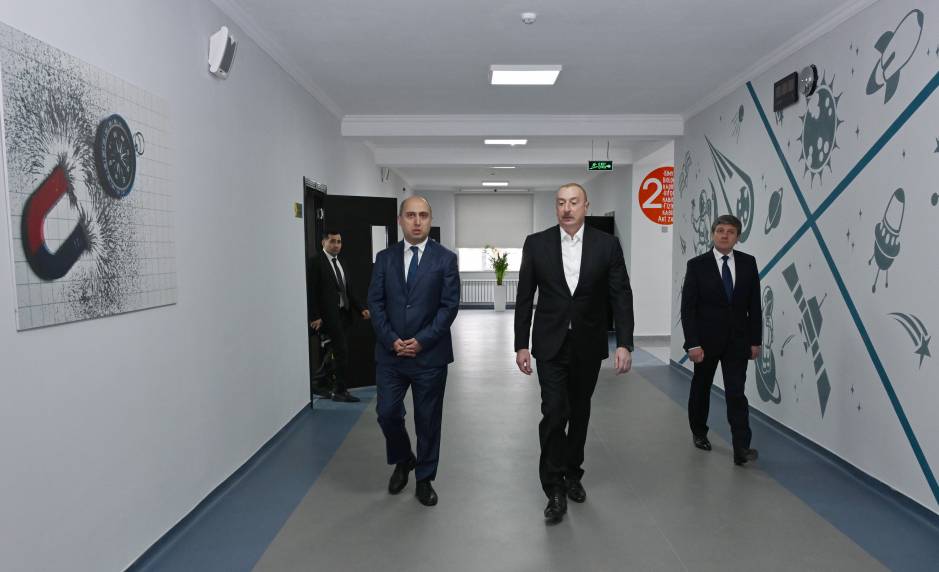14:08
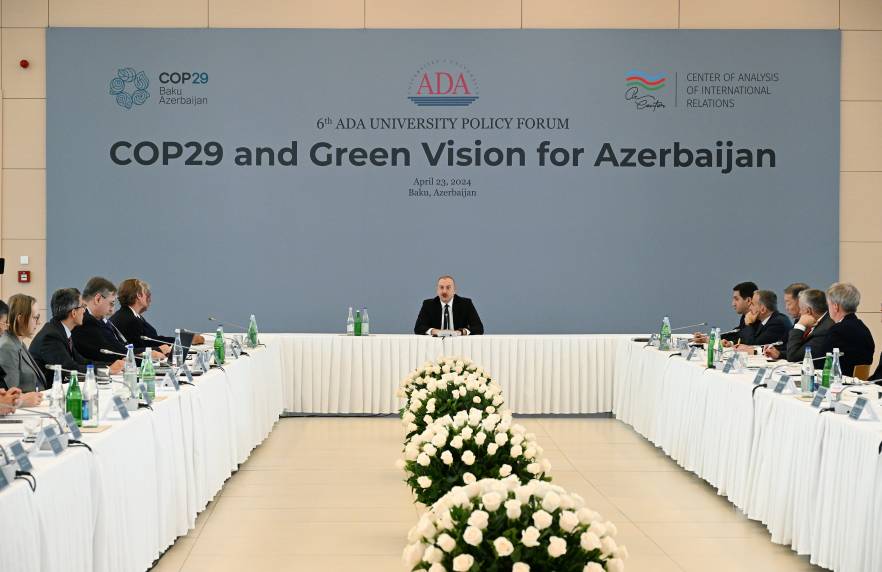
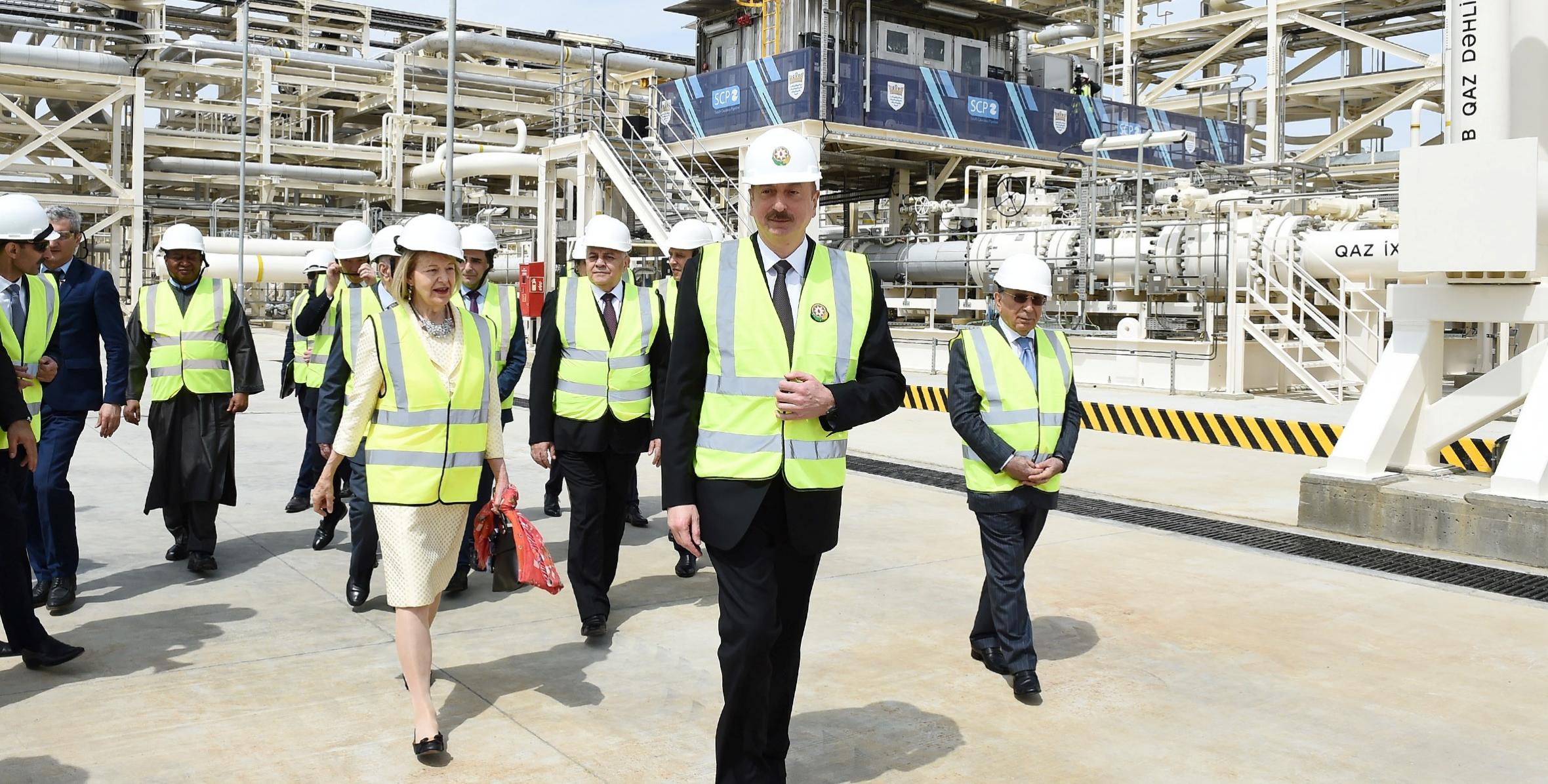
President of the Republic of Azerbaijan Ilham Aliyev has attended the official opening ceremony of the Southern Gas Corridor in Sangachal terminal.
The head of state also participated in the opening ceremony of the 25th Anniversary International Caspian Oil & Gas Exhibition. The ceremony was broadcast live at the Baku Expo Center where the exhibition was held.
President Ilham Aliyev made a speech at the event.
Speech of President Ilham Aliyev
- Dear ladies and gentlemen,
Dear friends!
It is a very significant day in the history of our country today. It is a historic day. It is the day of official inauguration of the Southern Gas Corridor. I sincerely congratulate you and all the people of Azerbaijan on this occasion.
We are celebrating this day here, at the Sangachal Terminal. The Sangachal Terminal is the world's largest oil and gas terminal. It was here that the foundation of the Southern Gas Corridor was laid four years ago. I should also note that the 25th Caspian Oil and Gas exhibition opens at the Baku Expo Center today, and participants of the exhibition can also be seen as participants of this ceremony. I welcome you all. Let me inform you that the opening ceremony of the Caspian Oil and Gas exhibition is taking place at the Sangachal Terminal instead of its actual venue for the first time in 25 years.
The Caspian Oil and Gas show has played a huge role in the implementation of Azerbaijan’s energy policy. The first exhibition took place in 1994. At that time, Azerbaijan was a newly independent state and was considered risky. This exhibition played a very important role in Azerbaijan's investment. Over the past 25 years, the exhibition has been regarded as being very authoritative on a global scale, and the number of companies and countries participating in it is gradually growing.
As I have already mentioned, the foundation of the Southern Gas Corridor was laid on this territory four years ago. I was absolutely sure at that time that even though it is a gigantic and very complex project from a technical and economic standpoint, it would be implemented successfully and on time. This project required extensive international cooperation. For the first time, Azerbaijan launched a project that requires such a large-scale international economic and political cooperation. Azerbaijan initiated the project. The official opening of the Southern Gas Corridor shows that we have achieved all our goals, and today a new period begins in the life of our country and in the development of the oil and gas industry.
The people of Azerbaijan officially celebrated the 100th anniversary of the Azerbaijan Democratic Republic yesterday. It was also a historic event because a democratic republic was created for the first time in the Muslim world in 1918. We are rightfully proud that this republic was created by the Azerbaijani people. Addressing an official ceremony yesterday, I said that if independence had not been lost in 1920 and the Azerbaijan Democratic Republic had not fallen, Azerbaijan could become perhaps one of the most developed and rich countries of the world today. After all, our natural resources and major reserves of oil opened up ample opportunities. However, Azerbaijan lost its independence, and since Azerbaijan was not independent in the previous period, the people of Azerbaijan could not use their natural resources.
The history of the world’s oil production begins in Azerbaijan. In 1846, oil was industrially produced in Baku, in Azerbaijan, for the first time in the world. A few years ago, a monument reflecting that historic moment was erected in the center of our city. At that time, in the second half of the 19th and beginning of the 20th century, Azerbaijan provided most of the world's oil production. But could the people of Azerbaijan benefit from that?! Of course not. Suffice it to look at the photographs and statistics of those years to see that our people lived in abject poverty and there was no question of any industrial development. Azerbaijan was just a resource base, and the "black gold" produced in Azerbaijan did not serve the development of the Azerbaijani people. Our oil reserves were depleting. The income from oil was not channeled into the well-being of the Azerbaijani people. In addition, we were faced with great environmental problems on the Absheron Peninsula. These problems are being addressed by the independent state today.
The independent Azerbaijan and our successful oil and gas policy show today that the Azerbaijani people can benefit from their natural resources only in the conditions of independence, only in the years of independence. Azerbaijan can successfully develop only as an independent state. We firmly stand on our feet as an independent state today and successfully address all the tasks on the country’s agenda. We are implementing such giant projects together with our partners and redrawing the energy map of the world.
In 1991, when the Soviet Union collapsed, Azerbaijan restored its state independence. But the first two years of independence were very difficult. The country was in a practically uncontrollable state. There were chaos, anarchy and crisis. The oil industry was in full decline. A civil war began. So the country was faced with great threats, and the first two years of independence were formal in nature because Azerbaijan could not pursue an independent policy.
In 1993, the Azerbaijani people appealed to Heydar Aliyev, invited him to take power, elected him as President, and a period of successful development of Azerbaijan began after that. If we look at the history, we can see that Azerbaijan has been developing confidently ever since. All the goals on the country’s agenda are being successfully met. Our oil and gas sector, which forms a key part of the country's economy, is also developing.
As I already mentioned, the first Caspian Oil and Gas exhibition was organized in 1994. That exhibition played a huge role in promoting Azerbaijan in the world as a country rich in resources. The Contract of the Century was signed on 20 September 1994. The Azeri-Chirag-Gunashli oil fields are among the largest fields in the world. The Contract of the Century, signed 24 years ago, has now been extended until 2050. In other words, this in itself shows how immense oil reserves of this field are. The Contract of the Century gave Azerbaijan a second breath and served to revitalize our country. For the first time ever, the Caspian Sea was opened to foreign companies. We invited these companies, and the implementation of the Contract of the Century has been very successful. The signing of this contract signaled the start of Azerbaijan’s new oil strategy.
I remember those historical days well because I was directly engaged in these matters as vice-president of the State Oil Company at the time. Azerbaijan's oil strategy was defined at that time, and today we are seeing the fruits of that strategy and of the work done.
After 1994, a second major contract was signed for the Shah Deniz gas field. I must also note that this contract was signed in early June 1996, exactly on the day of the Caspian Oil and Gas exhibition. Thus, Azerbaijan introduced itself to the world not only as an oil but also as a gas country. I also remember quite well that the gas factor did not play a serious role in the issues of energy security in the world at that time. Even the development of gas fields did not cause much interest because profits were lower compared to oil fields. Therefore, it was not very easy to attract investors to this project. But today, while marking the inauguration of the Southern Gas Corridor on this historic day, we see how timely and wise that step was. The Shah Deniz gas field is the main resource base of the Southern Gas Corridor.
In 1997, as a result of the implementation of the Contract of the Century, first oil was produced from the Chirag platform. That historic footage is already being shown – it was a truly historic day. Foreign companies had produced oil from a new field in the Caspian for the first time.
Azerbaijan is a country that does not have access to the world ocean seas. Therefore, it was necessary to build oil pipelines, and the first Baku-Supsa oil pipeline was commissioned in 1999. In other words, it shows that we completed all this hard work in such a short period of time. It required major financial resources. At the same time, those were technically very complex projects. I should also say that we did not have large financial resources in 1999. Following this, the Baku-Tbilisi-Ceyhan oil pipeline was commissioned. Therefore, the implementation of these projects required tremendous effort and great wisdom. By commissioning the Baku-Supsa oil pipeline, we linked the Caspian Sea with the Black Sea by an oil pipeline for the first time in history.
After that, in 2002, awaiting the major oil from the Azeri-Chirag field here, we laid the foundation of the Baku-Tbilisi-Ceyhan oil pipeline here on the territory of the Sangachal Terminal. This pipeline was commissioned in 2006, and today it serves the people of Azerbaijan and all friendly countries. Today, not only Azerbaijani oil but also oil from other countries is transported via the Baku-Tbilisi-Ceyhan oil pipeline. Oil produced by other countries on the eastern coast of the Caspian Sea is already sent to world markets via this pipeline. Today, Azerbaijan also offers its opportunities as a reliable transit country to its neighbors.
The Baku-Tbilisi-Erzurum gas pipeline was commissioned in 2007. This is also a very important project, without which development of the Shah Deniz field would have been impossible. Thus, Azerbaijani gas was first transported to Georgia and Turkey in 2007. I remember that day perfectly well. I remember the ceremony in Ceyhan very well. When I was coming here today, all those historic moments, those days came to life in my memory again. I want to say again: these are truly historic achievements.
Steps were initiated to further develop the Shah Deniz field. Of course, we all knew very well that gas pipelines were required to transport large volumes of Azerbaijani gas to world markets. Thus, specific work started on the creation of the Southern Gas Corridor. Tremendous work was carried out and negotiations held, and a contract on TANAP, the Trans-Anatolian gas pipeline, was finally signed between Azerbaijan and Turkey in 2012. Thus, a powerful impetus was given to the implementation of the Southern Gas Corridor. TANAP is an important part of the Southern Gas Corridor. Next month we will also celebrate the commissioning of the TANAP project. As I have already mentioned, the foundation of the Southern Gas Corridor was laid on 20 September 2014, which is also quite symbolic because the Contract of the Century was signed on 20 September 1994, 20 years earlier. Today we are marking the inauguration of this project, a great and historic event indeed.
The Southern Gas Corridor is a giant infrastructure project. Investment in excess of 40 billion dollars has been made in the implementation of this project. The confirmed gas reserves in Azerbaijan constitute 2.6 trillion cubic meters. I am sure that the volume of resources we have is even greater, and further exploration and operation will confirm that.
The implementation of these projects would be impossible without international cooperation. First of all, I would like to say a few words about regional cooperation. While implementing the Baku-Tbilisi-Ceyhan, Baku-Tbilisi-Erzurum and other important projects, including the Baku-Tbilisi-Kars transport project, Azerbaijan, Georgia and Turkey have already created a format for a strong tripartite regional cooperation. Therefore, the joint efforts of these three countries have a special place in the implementation of these projects. I would like to take this opportunity to thank the leadership of Turkey and Georgia for their cooperation. I want to express my gratitude to the Government of the United States of America today. The United States of America provided us with great support, both political and moral, and helped us in all these projects. Of course, these projects require major resources, and a significant portion of financial resources has been provided by banks. The US government has made great efforts in this matter. We have always felt this support, including the implementation of the Baku-Tbilisi-Ceyhan, Baku-Tbilisi-Erzurum and Southern Gas Corridor projects. This support has played a huge role in the implementation of these projects.
The UK government has always stood by us. As you know, BP is our main investor in the energy sector. The British Government has always supported us in the implementation of these projects, and we feel this support today. Last month, another contract between BP and SOCAR was signed with the participation of Prime Minister May and myself in London. This is a further reflection of the level of our strategic ties.
The European Union has played a very important role in the implementation of this project. A Joint Declaration on the Southern Gas Corridor was signed between the European Union and Azerbaijan in Baku back in 2011. Over these years, we have always felt the support of the European Union. Over the past four years, meetings of the Advisory Council of the Southern Gas Corridor have been annually held in Baku at the initiative of Azerbaijan and the European Union. Since 2015, the European Union has been represented at these events at the highest level. The energy sector naturally has a huge role in the format of cooperation between the European Union and Azerbaijan.
The implementation of these projects would be impossible without financial institutions. At today's ceremony, I also want to express my gratitude to the internationally known banks that have supported us. They believed in us and allocated financial resources. They and we are sure that Azerbaijan, as a reliable partner, will timely repay all the debts.
In a word, I am confident that this project, carried out within the framework of broad international cooperation, will serve to further deepen cooperation in Europe and in our region not only in energy but also in all other sectors.
Seven countries are involved in the implementation of the Southern Gas Corridor. I would like to name these countries today – Azerbaijan, Georgia, Turkey, Bulgaria, Greece, Albania, and Italy. Broad international cooperation has been created.
At the same time, I am sure that three Balkan countries – Bosnia and Herzegovina, Croatia and Montenegro – will join the project as partners at the next stage. The Southern Gas Corridor should have branches. We want to expand our export opportunities. We know that there is also a need for Azerbaijani gas in Europe. We want to sell more gas to Europe because the European market is the most profitable for us.
The Southern Gas Corridor will also contribute to addressing energy security issues. Issues related to energy security are very high on the global agenda today, and national security issues depend to a large extent on energy security.
The Southern Gas Corridor is a very important and I think an indispensable project also in terms of the diversification of energy resources. In this project, we see diversification of both sources and routes because only in this case can we talk of the diversification of energy resources in the full sense of the word. The opening of new routes feeding from a single source does not mean energy diversification in the full sense of the word. We are implementing a project of energy diversification in the true sense of the word. Azerbaijani gas is a new source, and the Southern Gas Corridor is a new energy artery, a project that will redraw the energy map of Europe. The interests of all parties involved in the implementation of this project are ensured. This is also very important. There is a balance of interests here.
The producing country Azerbaijan, transit countries, including Azerbaijan and others, and consuming countries, those that will receive Azerbaijani gas as an alternative – thus, issues of energy security will be fully secured for them. In other words, if there was no balance of interests, this project could not be implemented. This is the very essence of our approach to energy policy. We must ensure mutually beneficial cooperation.
All participating parties, companies and countries should receive their dividends – political, in the field of security, and economic. Companies should receive their profit and Azerbaijan, of course, as the owner of the resources, receives and will receive its profit.
In conclusion of my speech, I want to point to the great benefits these projects will bring to our country. Azerbaijan is an independent country today. It firmly on its feet, pursues an independent policy and has a strong economy. Over the past 15 years, the Azerbaijani economy and gross domestic product have more than tripled. Over the past 15 years, more than 230 billion dollars have been invested in the country's economy.
The external public debt in Azerbaijan is at a very low level, amounting to only 20 per cent of the gross domestic product. Our foreign exchange reserves exceed foreign debt four to five times. In other words, we can easily pay off all our debts at any time. The level of poverty in Azerbaijan over the past 15 years has decreased from almost 50 to 5.4 per cent, unemployment is at 5 per cent. This shows that the black gold, oil and gas, have turned into human capital. It shows that our policy was to equitably distribute the revenues received from oil and gas in our society and channel them into projects necessary for the development of the country's economy. The Davos Economic Forum ranks the Azerbaijani economy in 35th place in the world in terms of competitiveness. This shows that we are successfully pursuing a policy of economic diversification. Oil revenues are channeled into the non-oil sector of the economy. According to the Davos forum, Azerbaijan is in third place among developing countries for the index of inclusive development. All this is underpinned by our successful oil and gas policy. At the same time, our prudent policy also lies at the heart of this work to a large extent. There are many countries that have significantly greater oil resources and produce more oil than us. But the successful development of countries is not determined by natural resources. The main contributors to successful development are sound policies, the unity between the people and the government, transparency, freedoms, proper economic policies and regional cooperation.
Today, on this historic day, I want to once again bring these historic moments to your attention and to the attention of the Azerbaijani people because the foundation of today was laid in those years. We have simply done all this work in a consistent manner. It is a very significant historic day in the life of our country today. On this day, I want to wish the Southern Gas Corridor a long and successful life.
Thank you.
X X X
U.S. Deputy Assistant Secretary of State in the Bureau of Energy Resources Sandra Oudkirk addressed the ceremony.
The UK Prime Minister's Trade Envoy to Azerbaijan Baroness Emma Nicholson read out a message of the Prime Minister of the United Kingdom of Great Britain and Northern Ireland Theresa May.
Ambassador Erkan Ozoral read out Turkish President Recep Tayyip Erdogan`s message.
Secretary General of the Organization of the Petroleum Exporting Countries (OPEC) Mohammad Sanusi Barkindo, Secretary General of the Gas Exporting Countries Forum Yury Sentyurin and BP Chief Executive of Upstream Bernard Looney addressed the ceremony.
The event then featured the screening of a BP-produced video on Shah Deniz-2 and Southern Gas Corridor projects.
President Ilham Aliyev then inaugurated the Southern Gas Corridor.
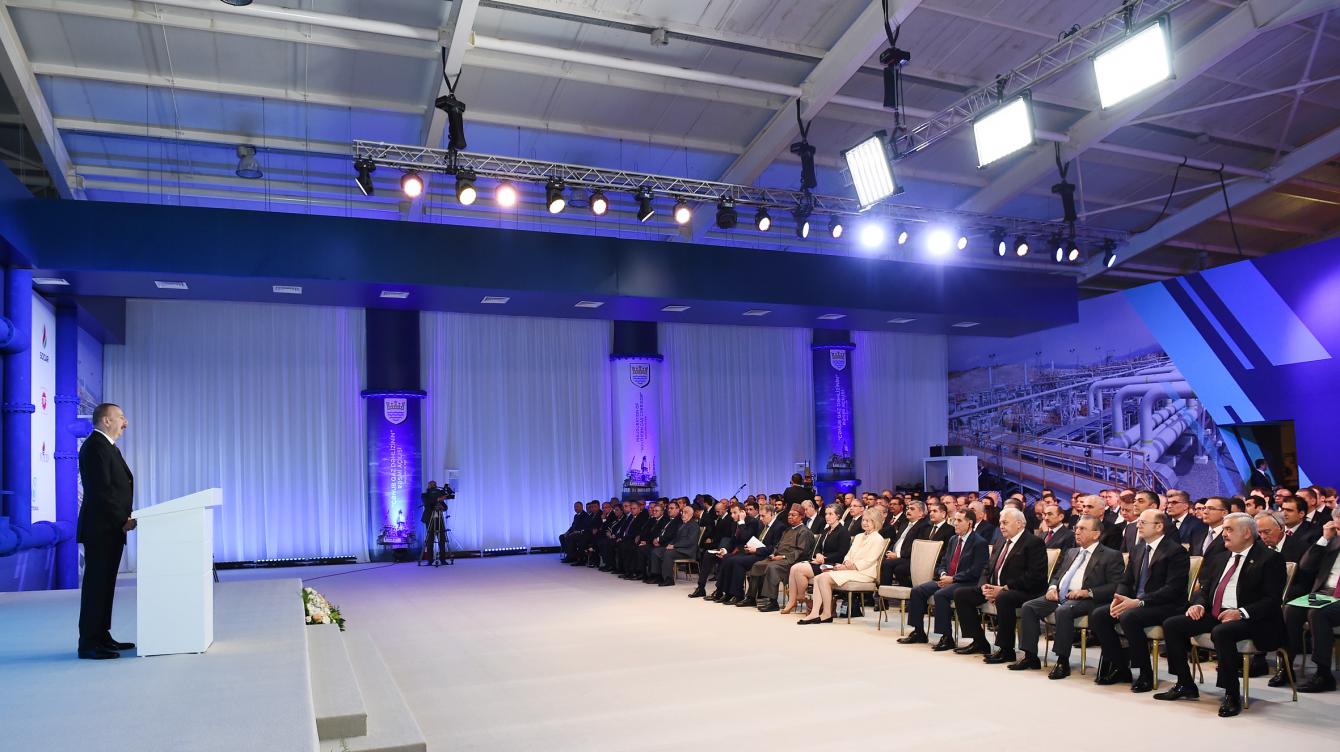
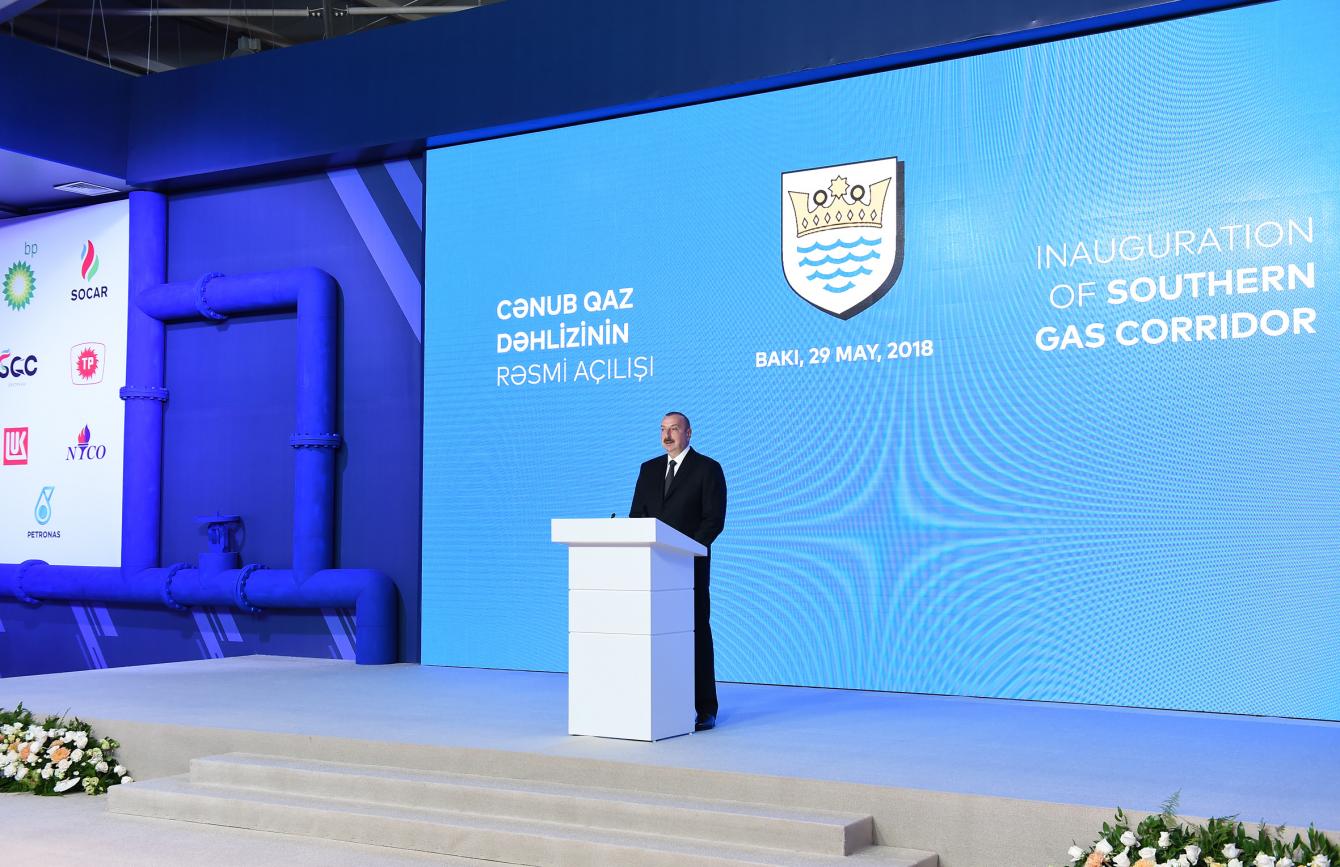
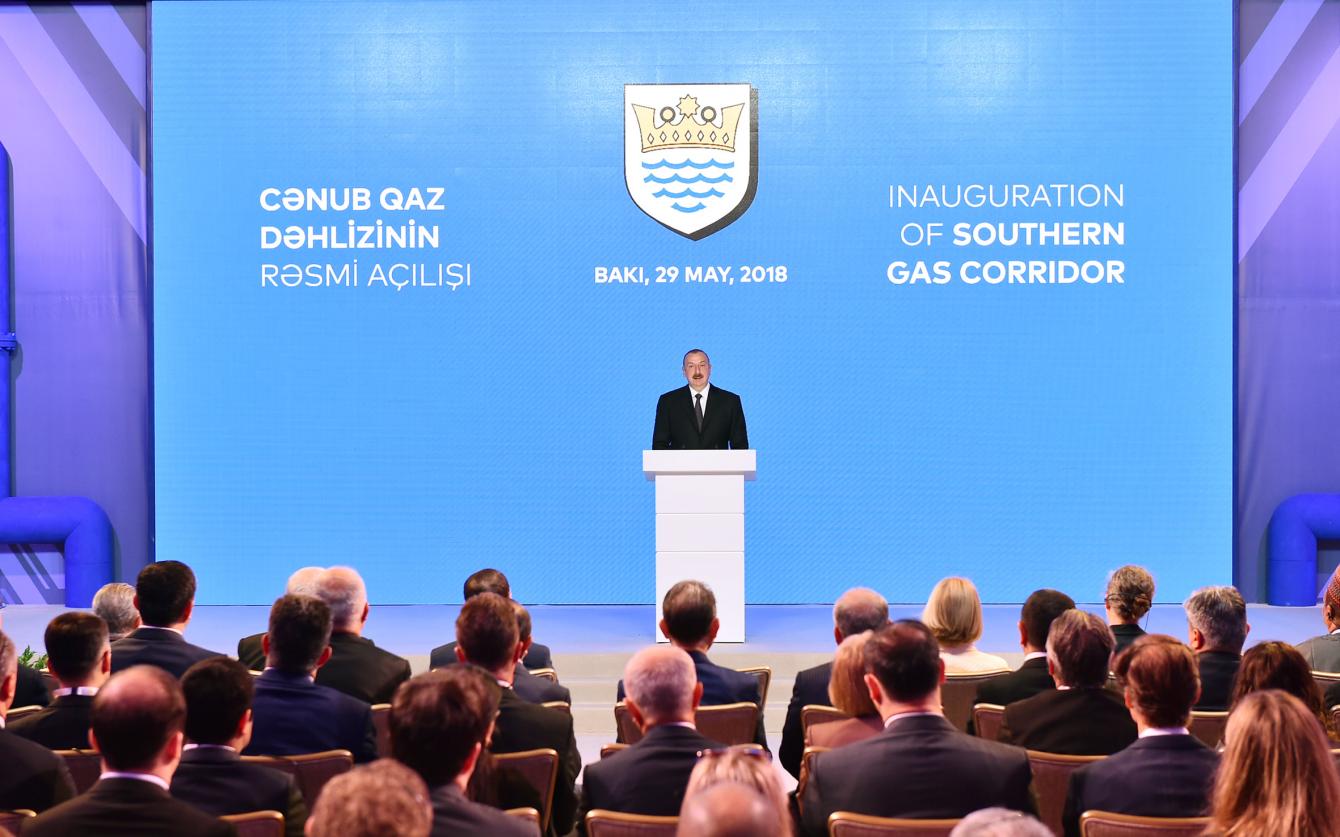
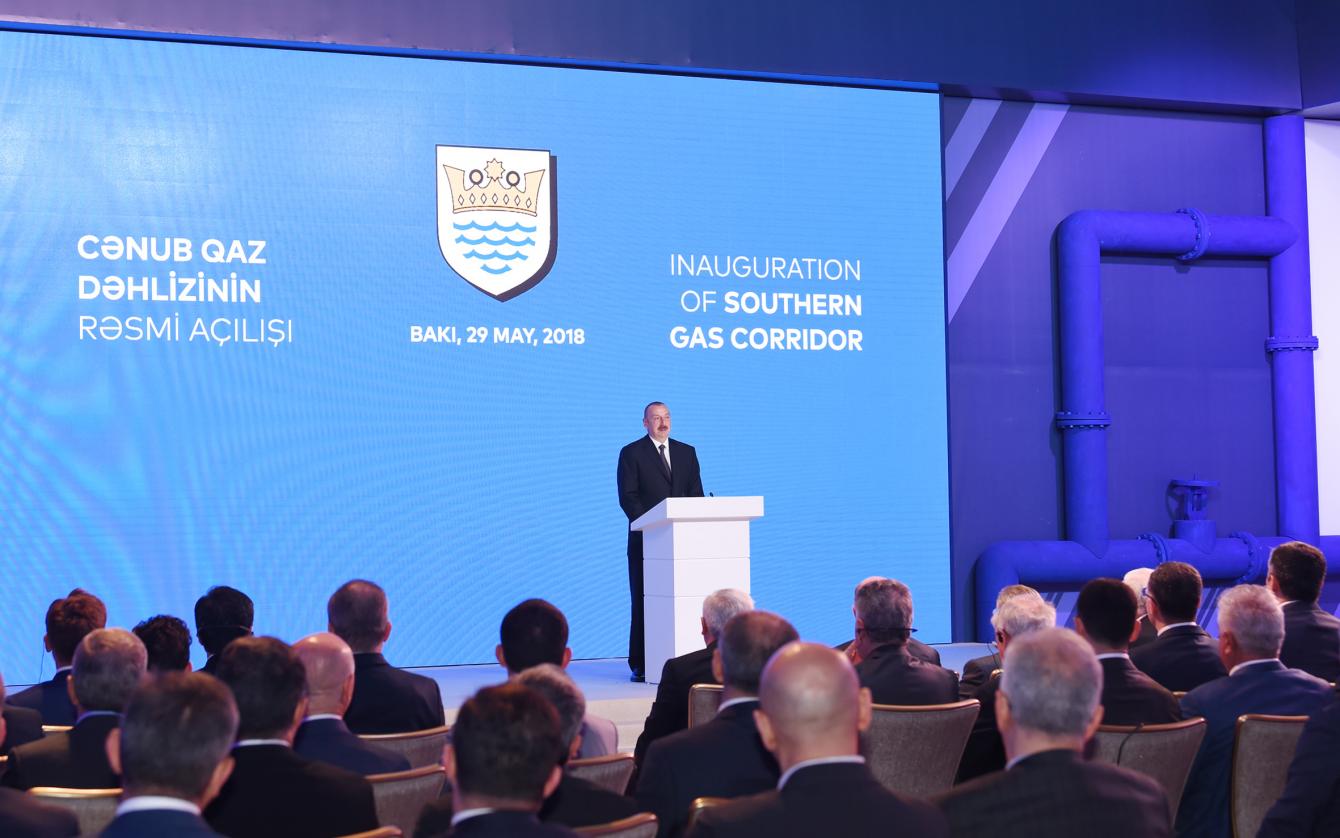
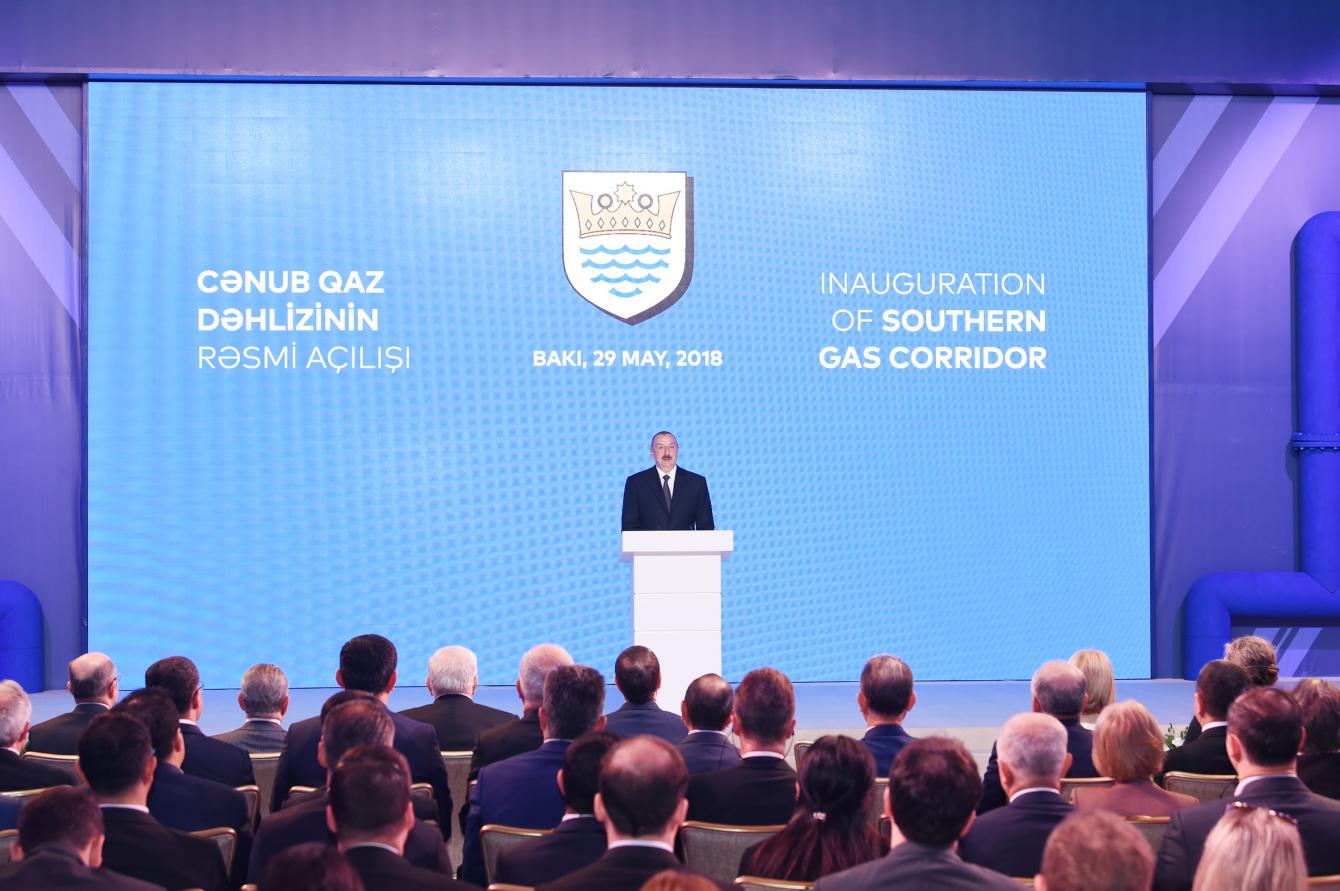
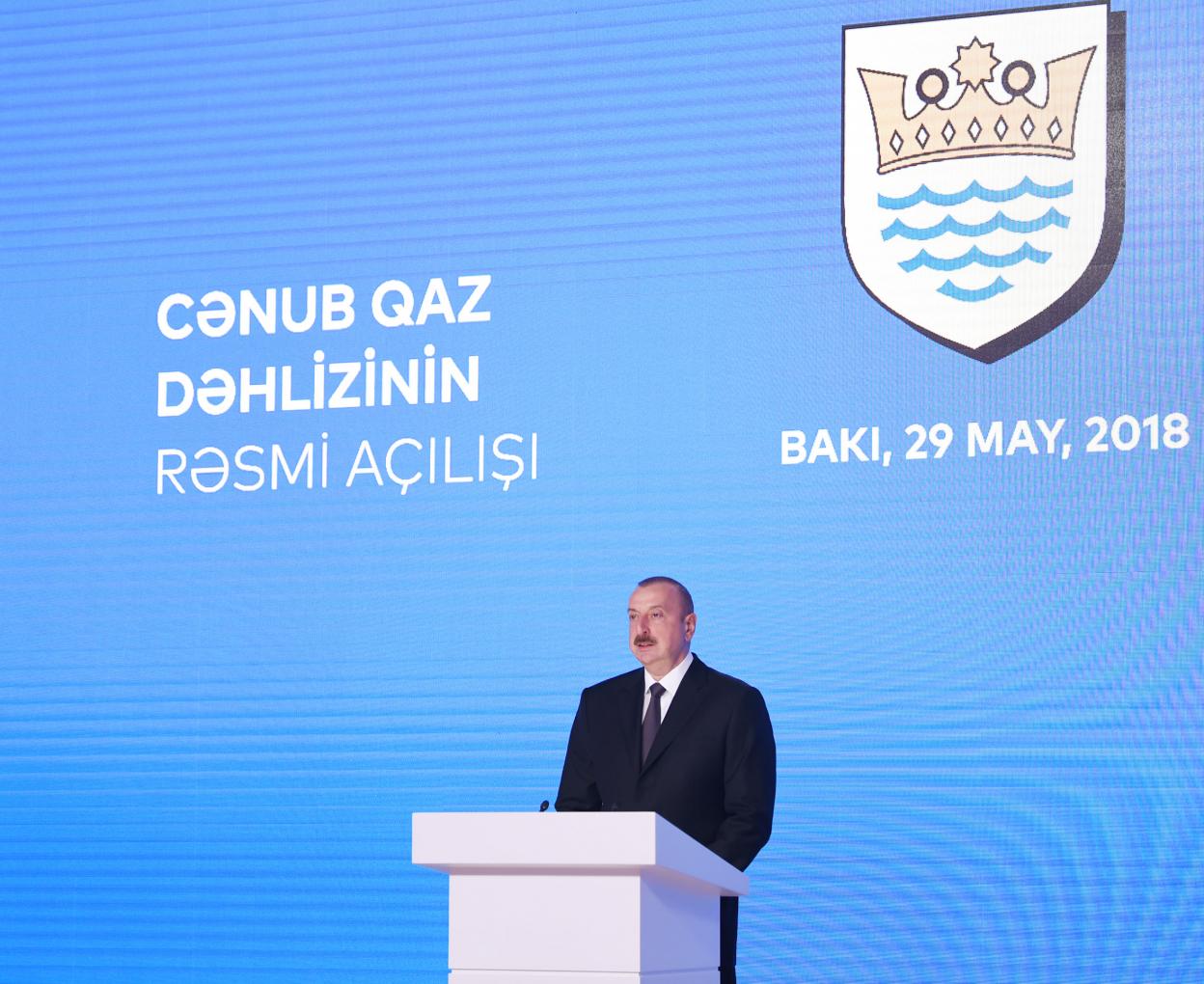
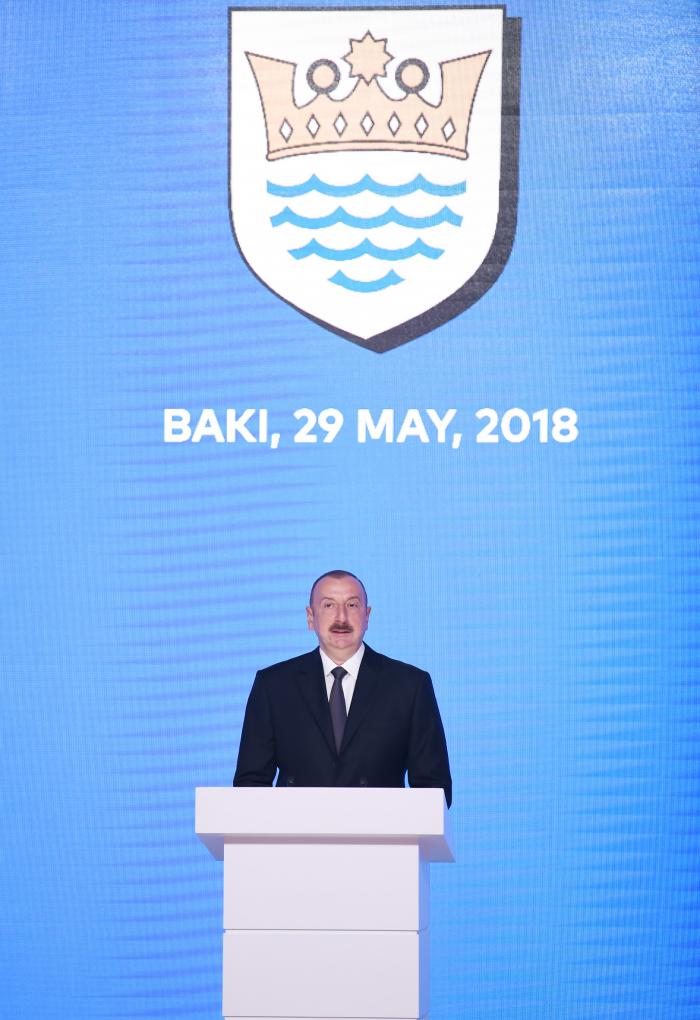
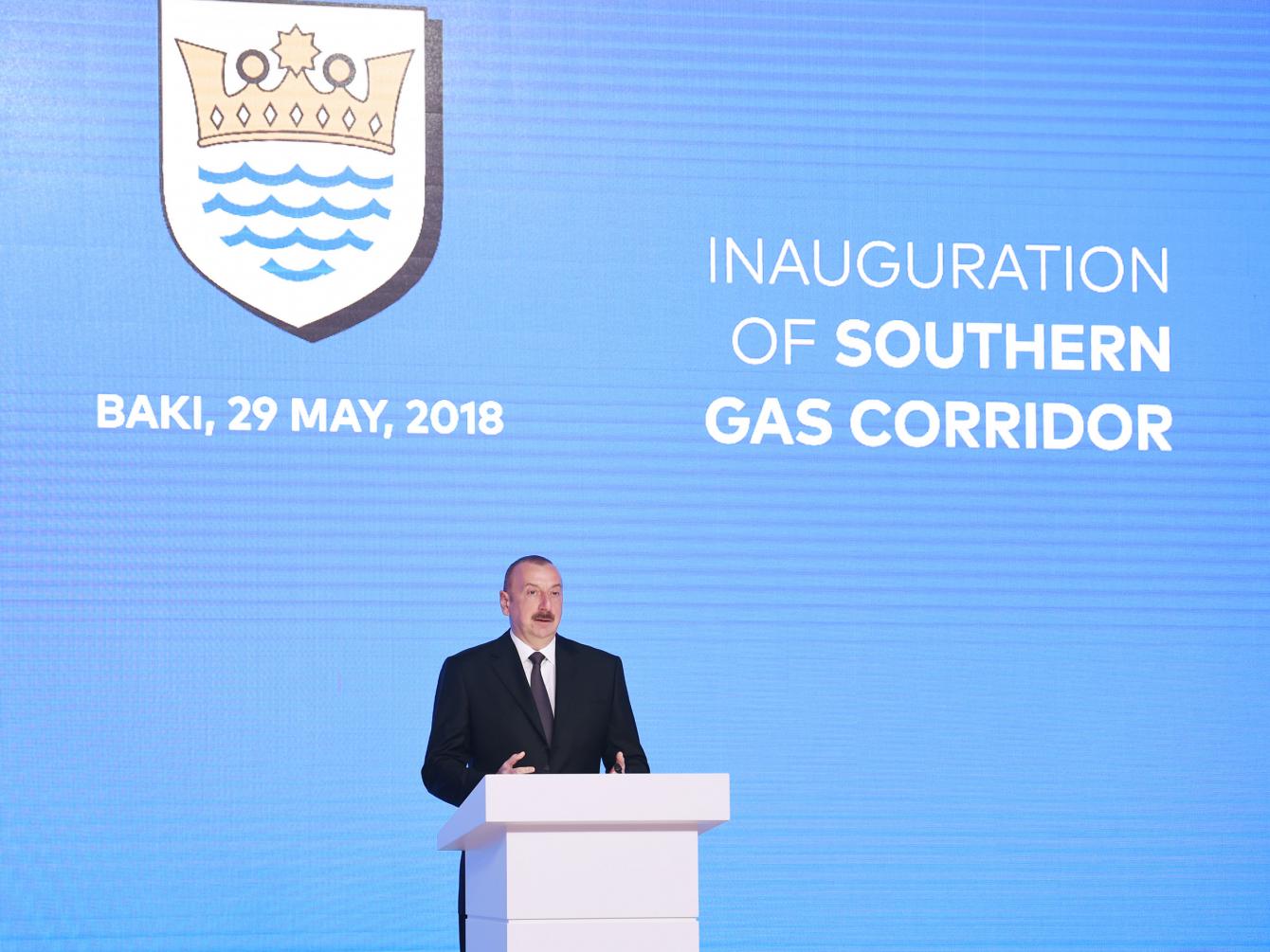
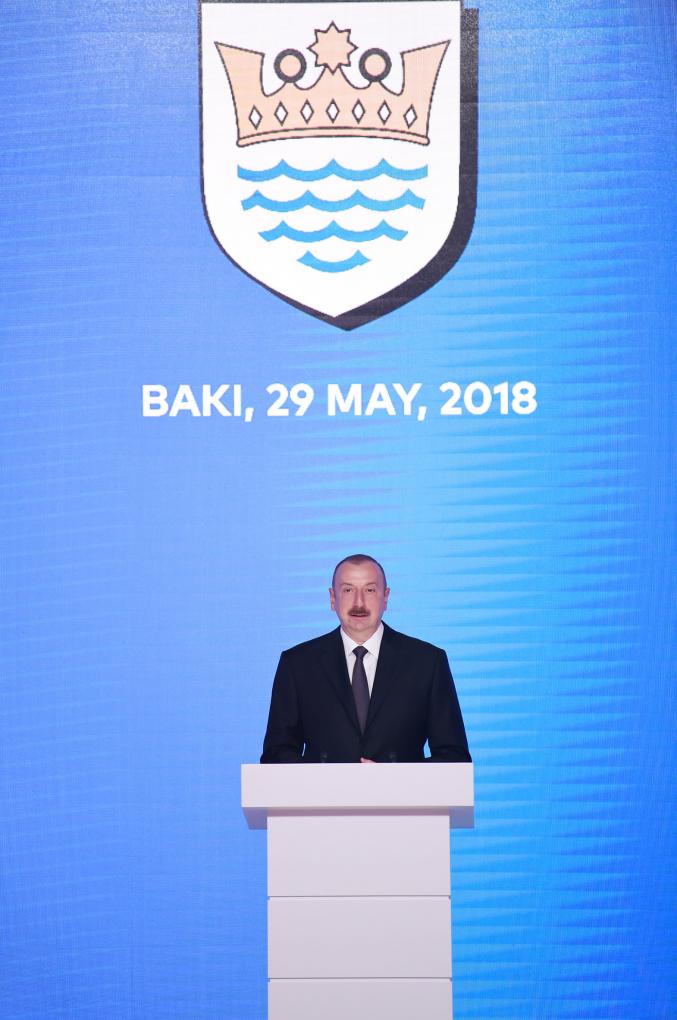
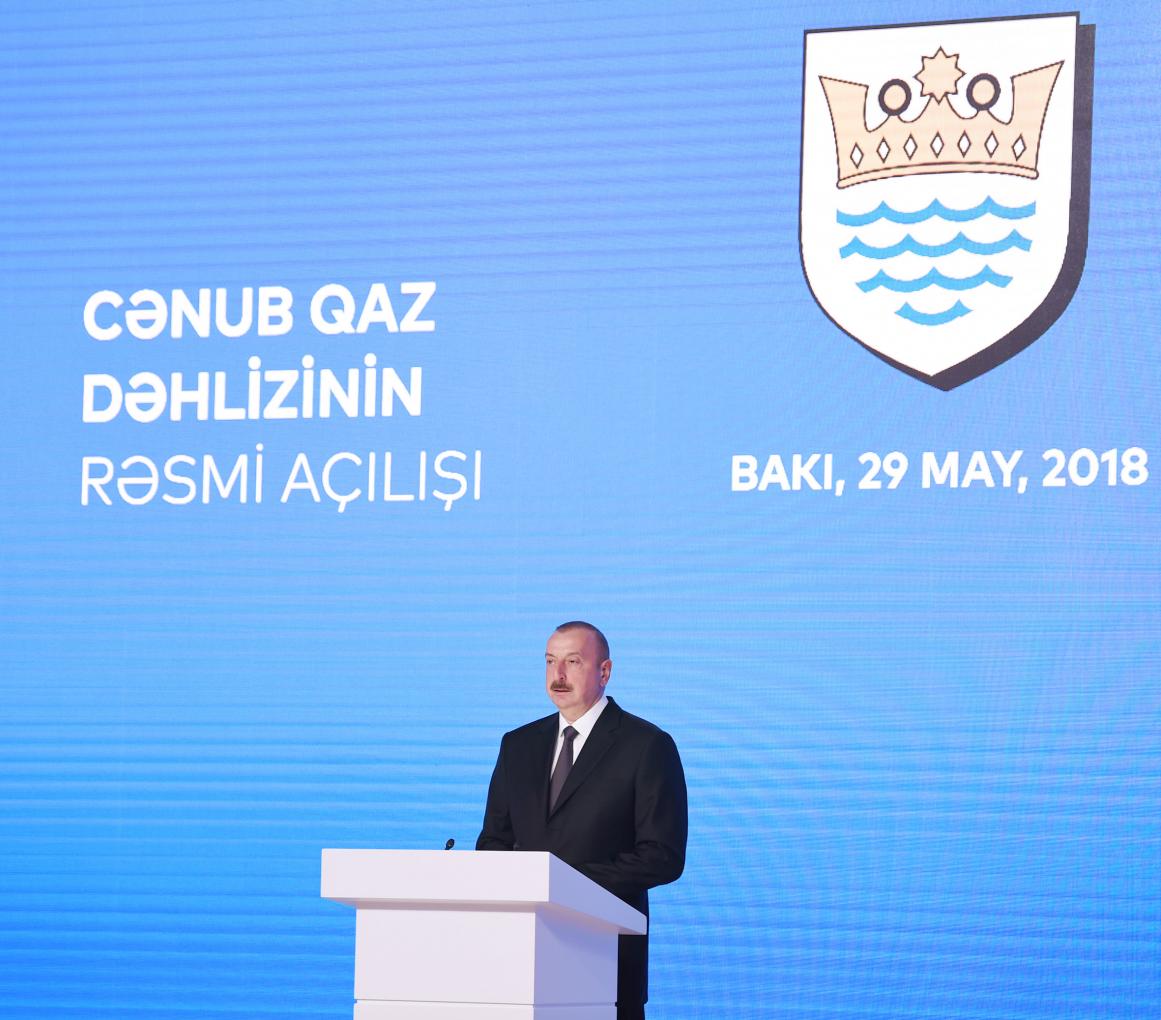
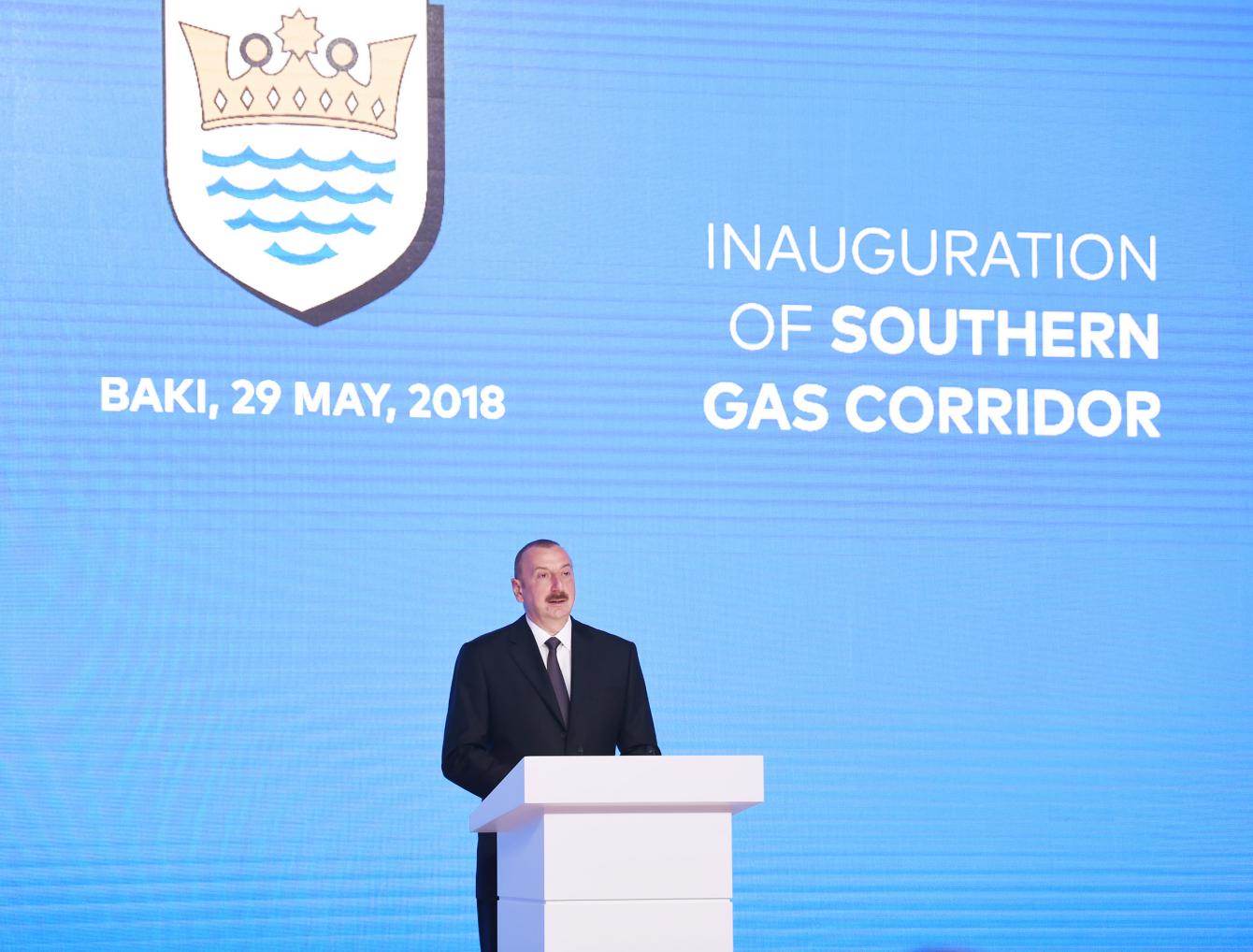
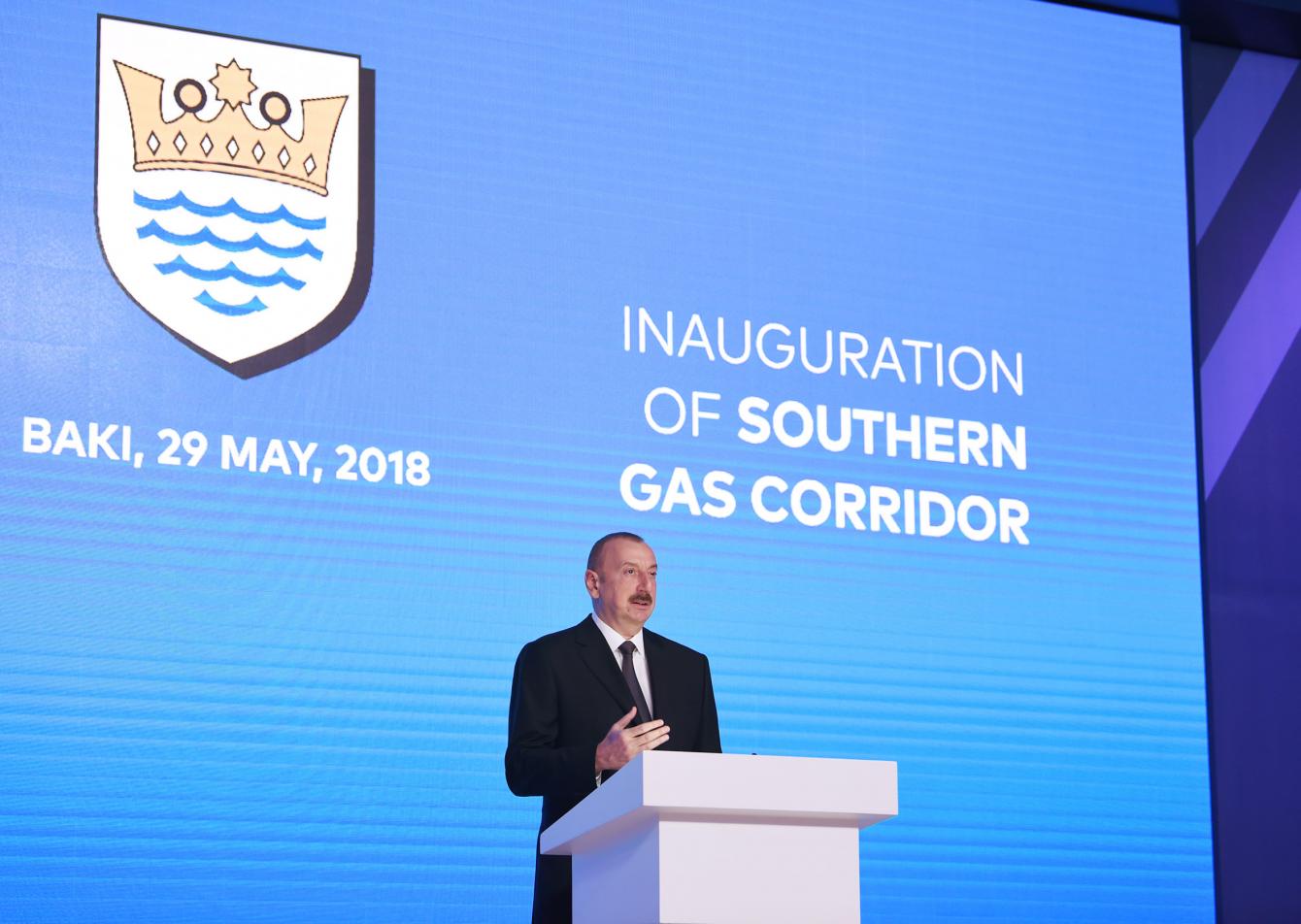
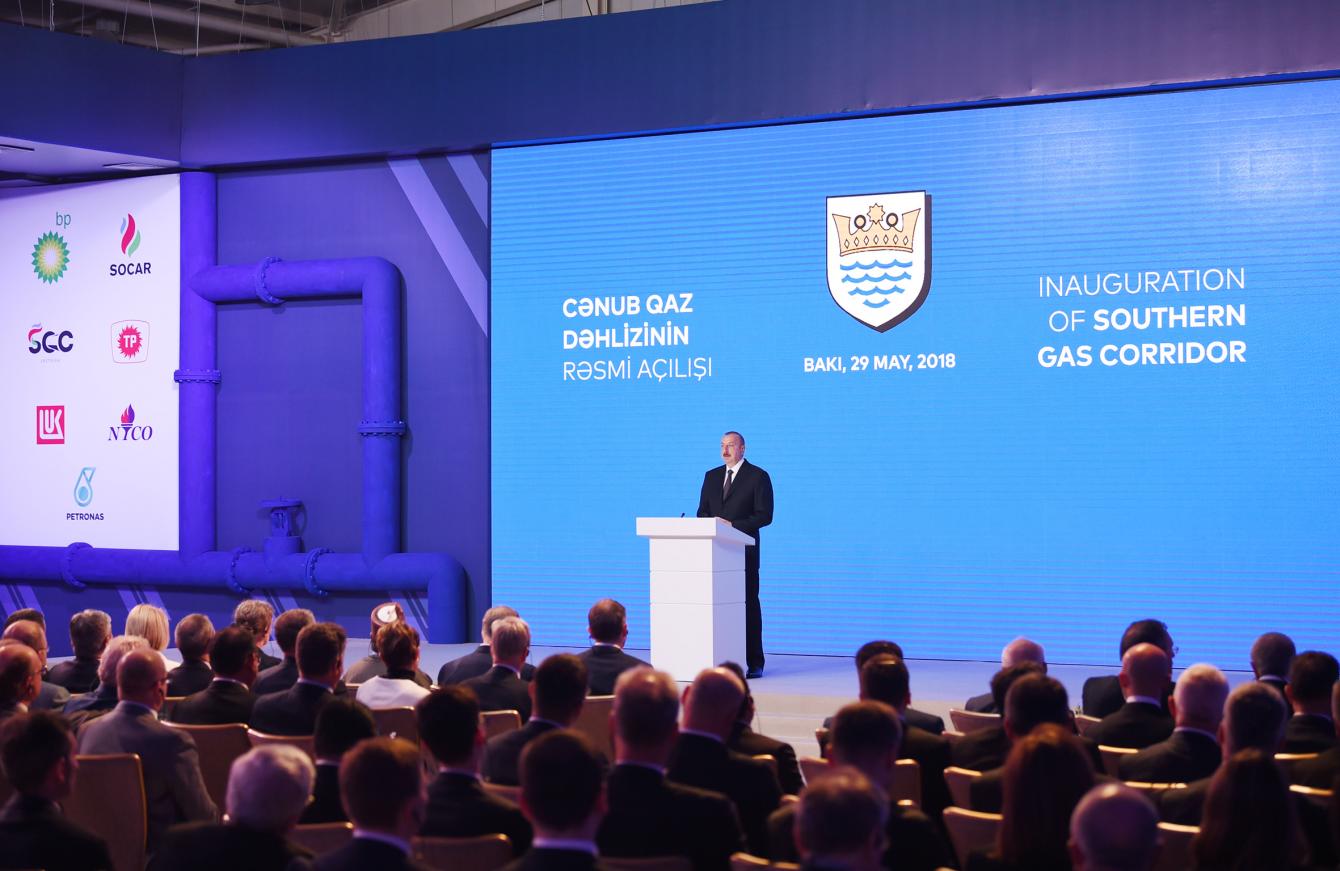
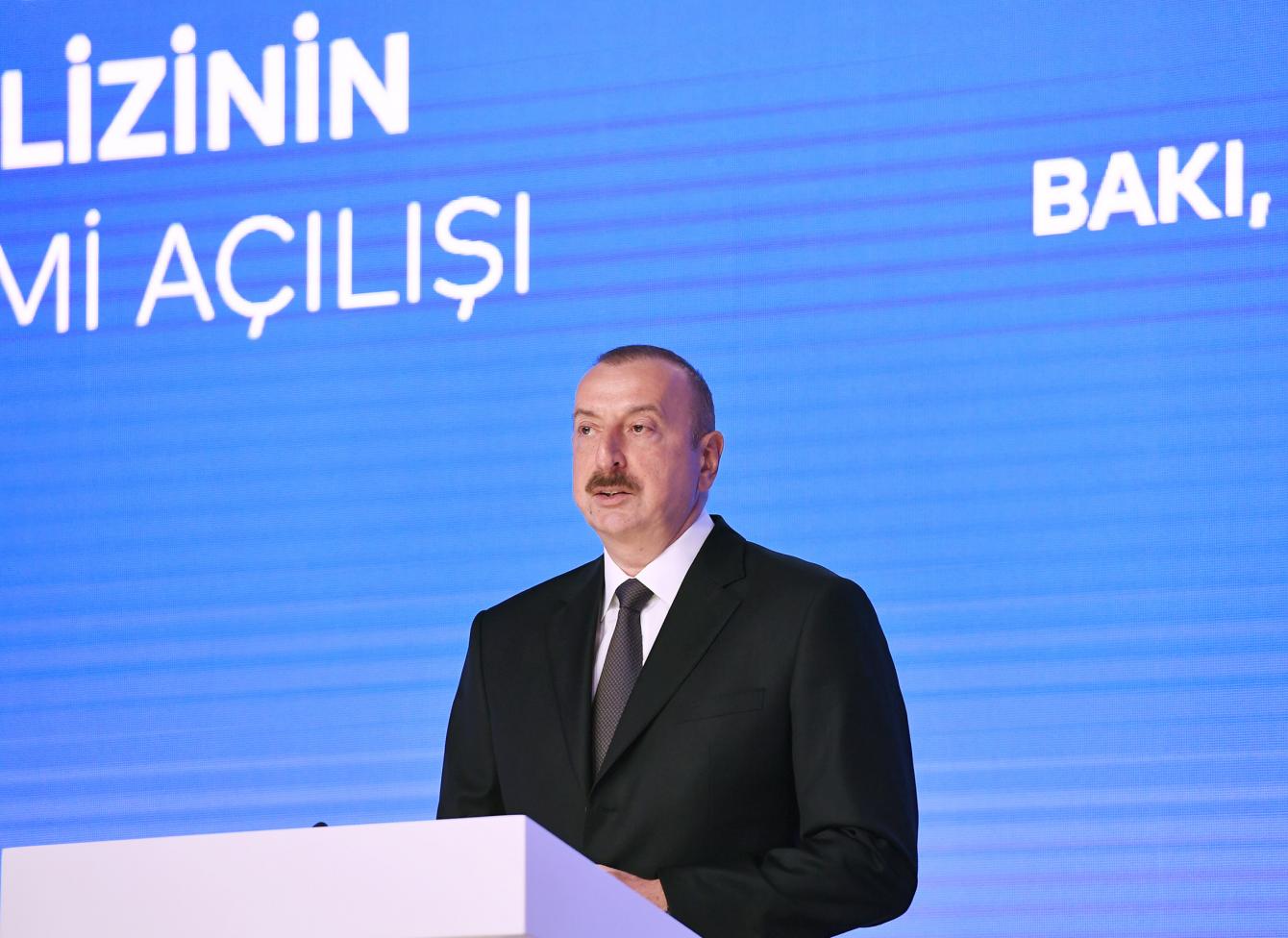
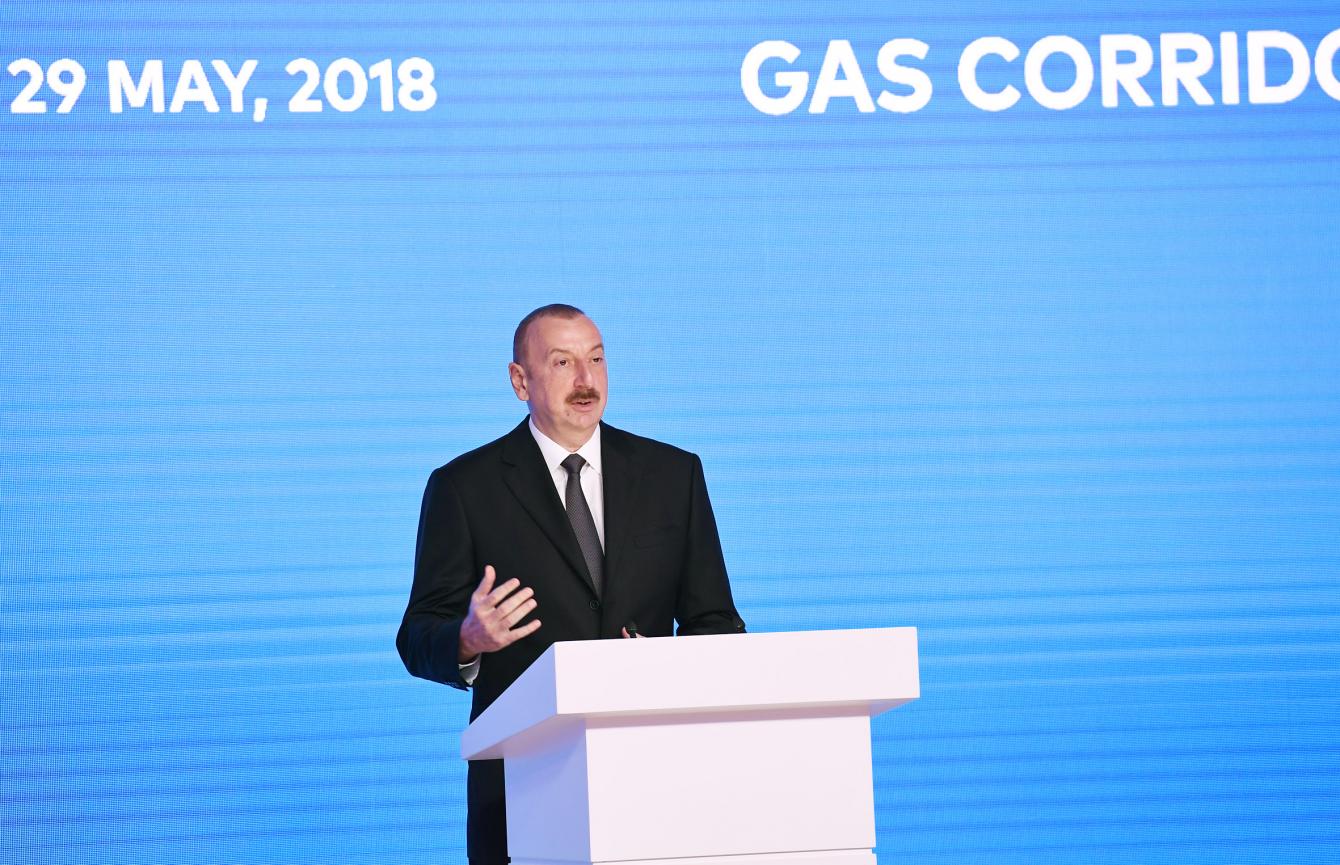
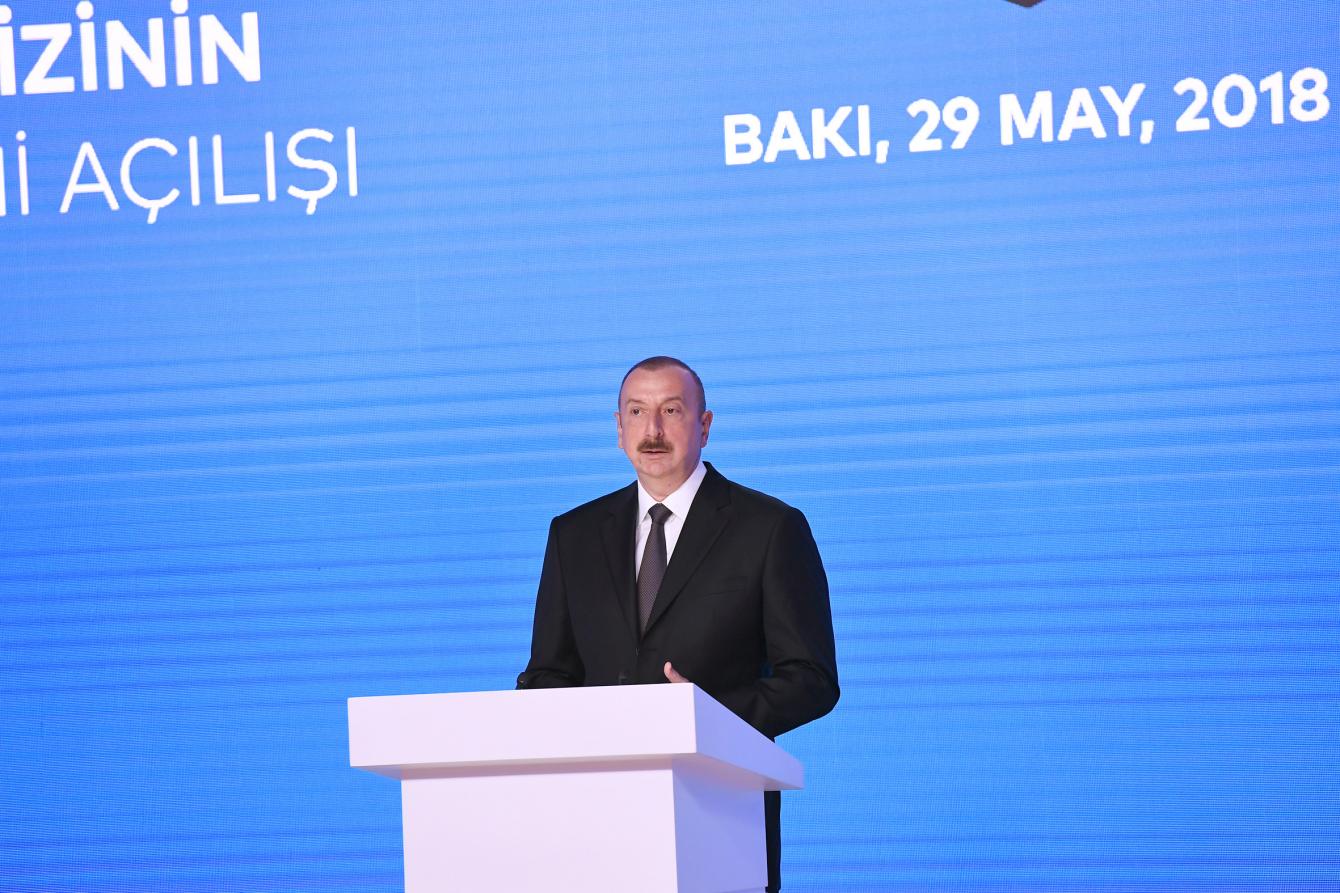
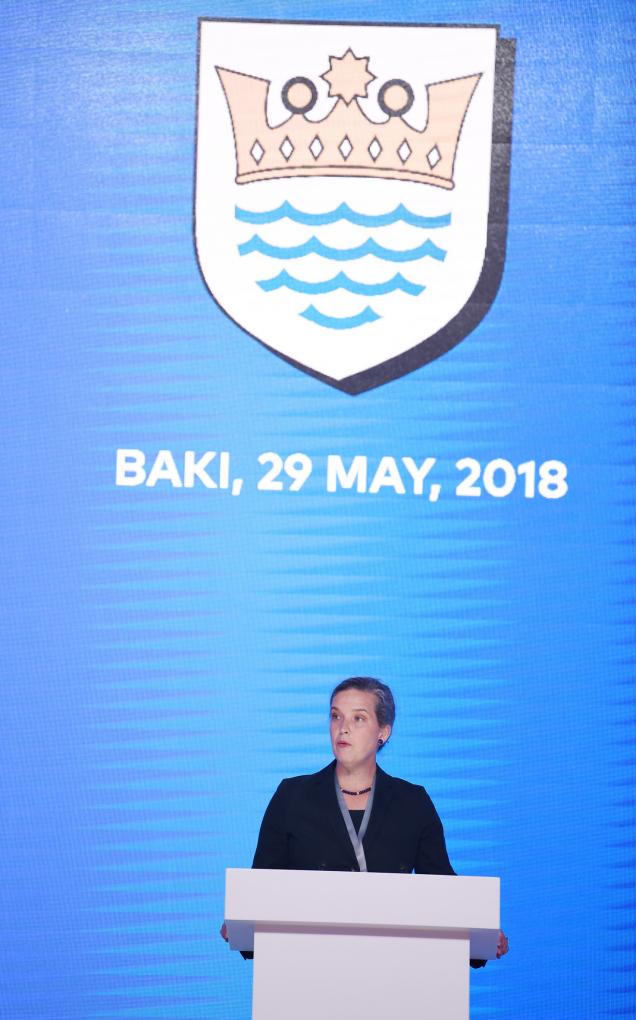
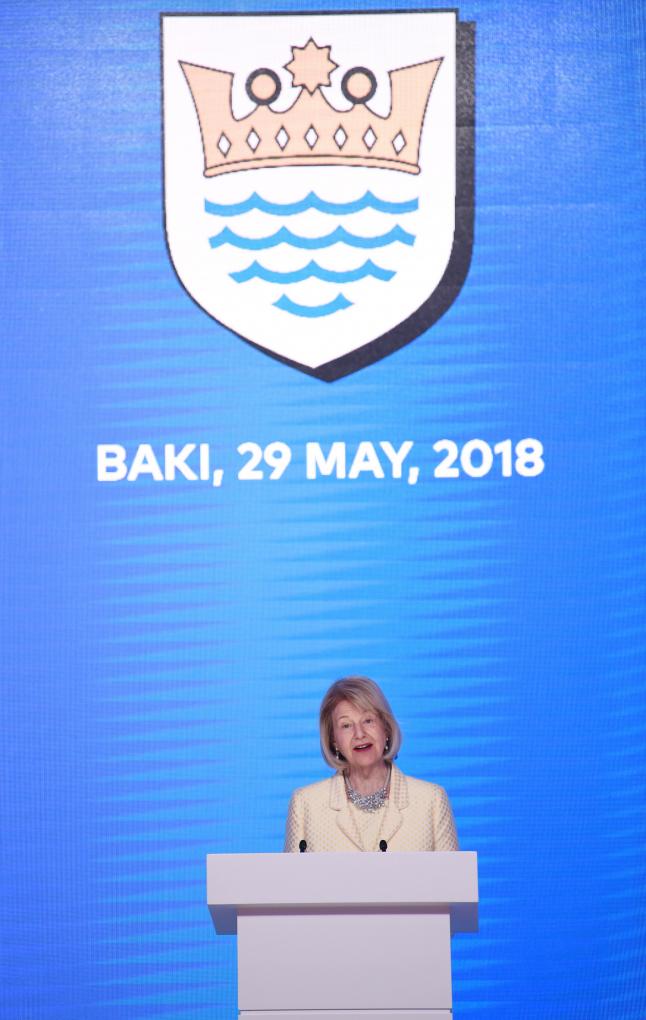
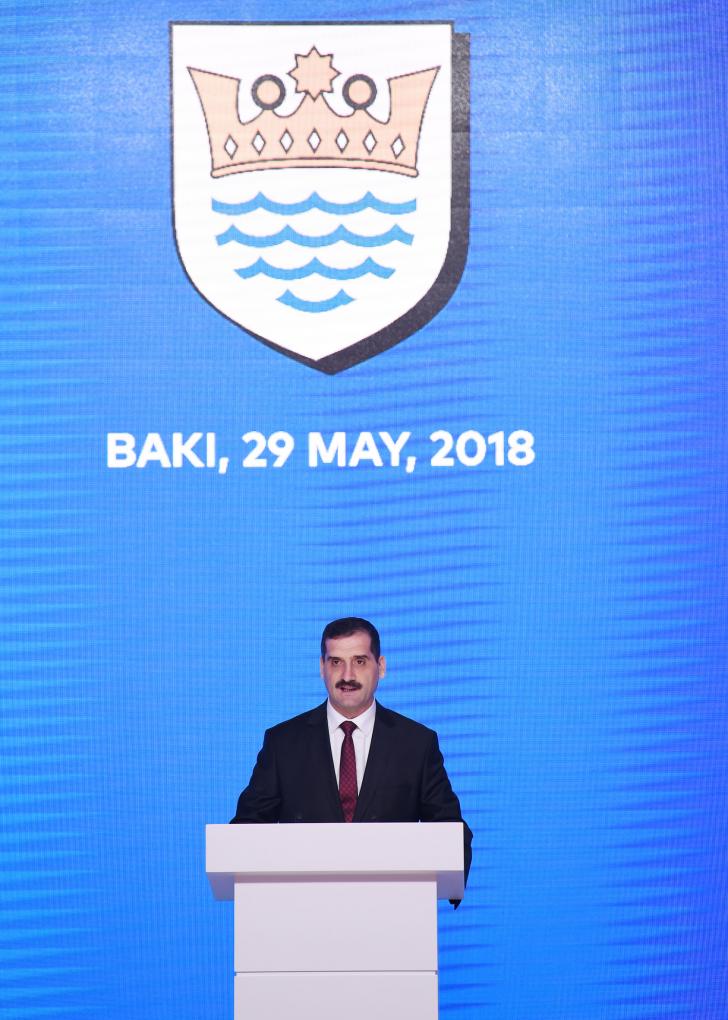
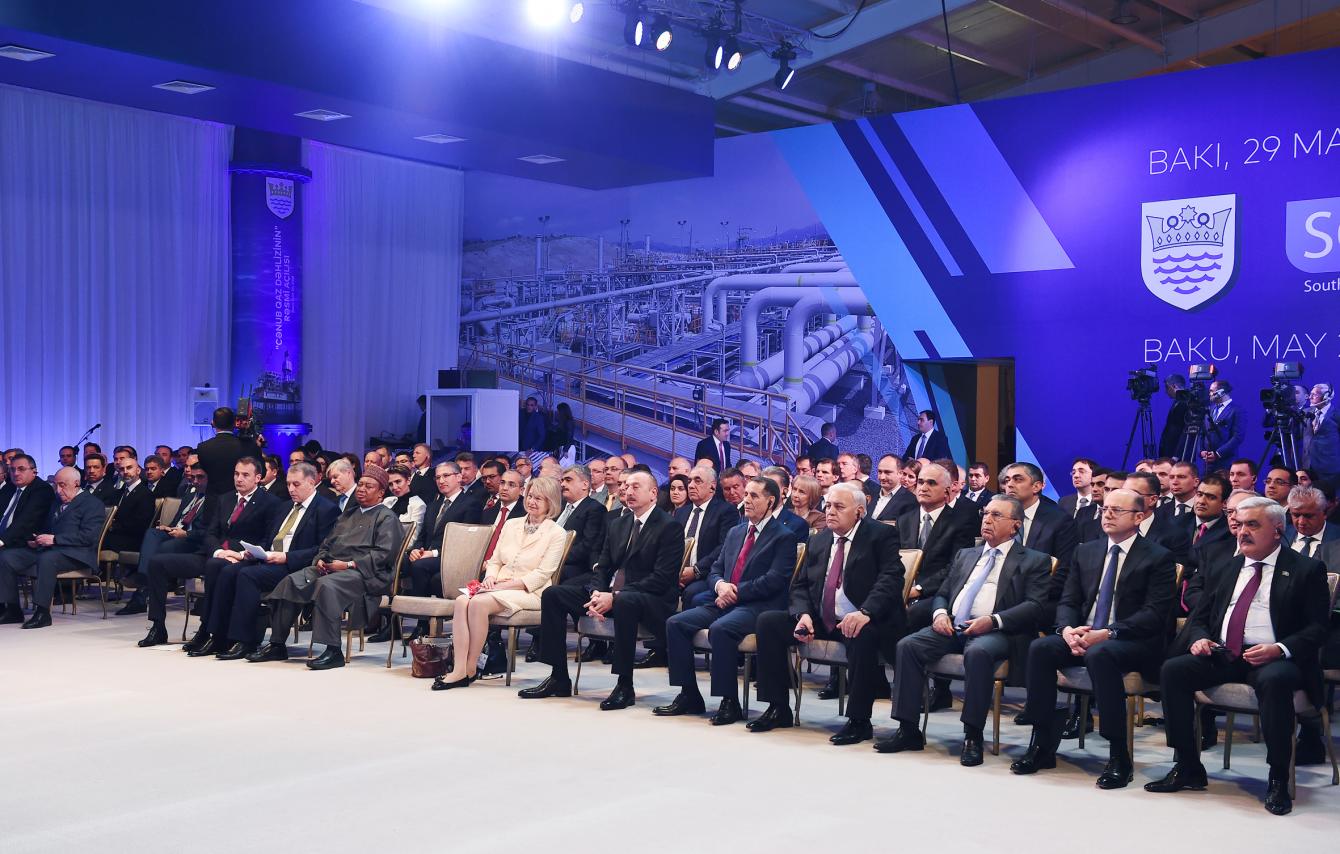
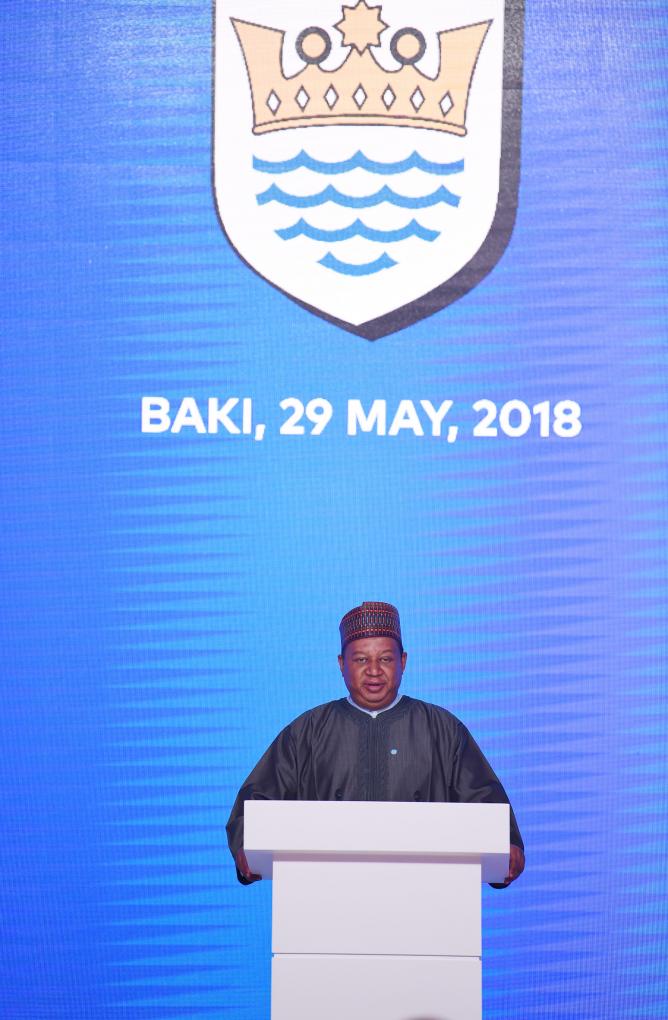
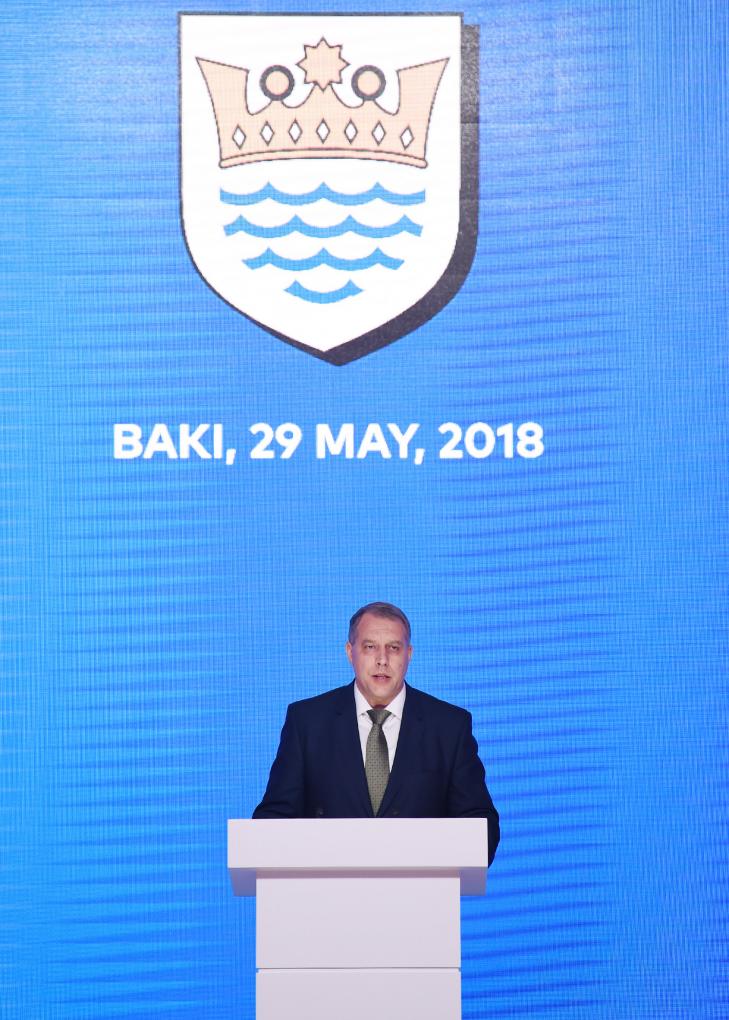
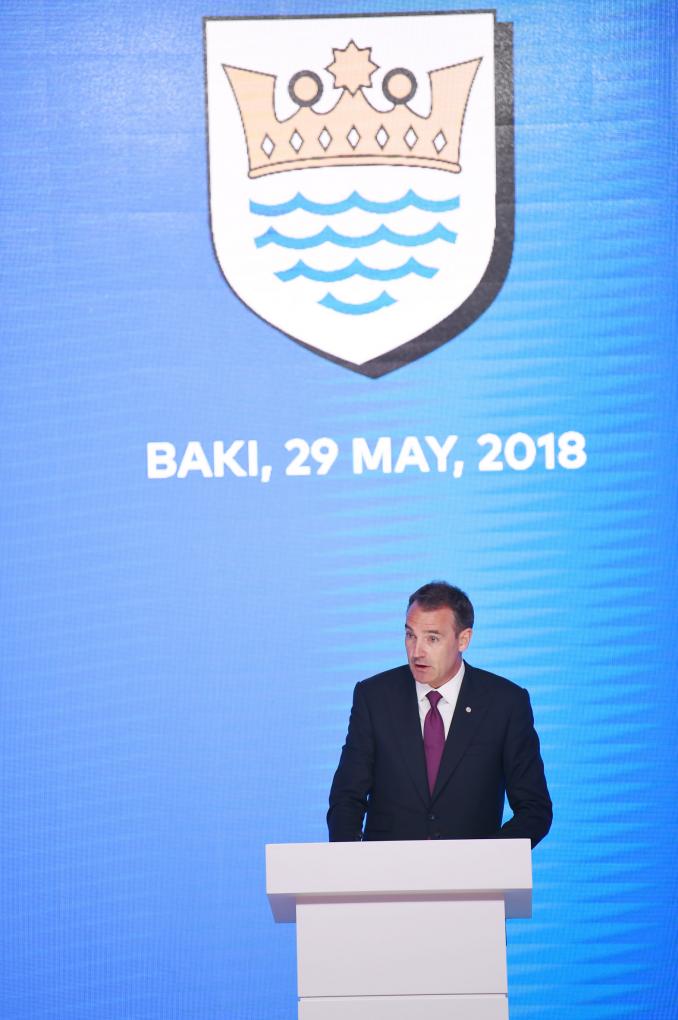
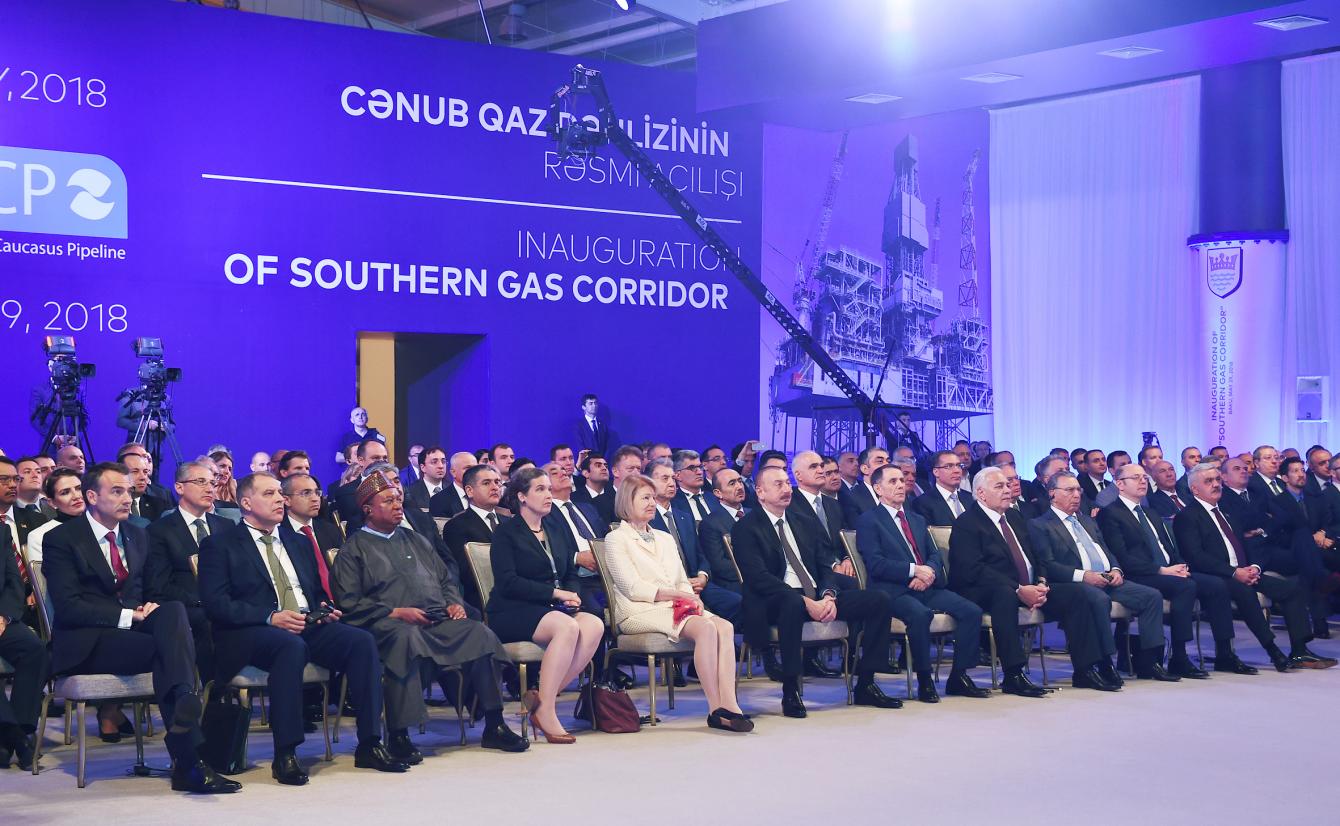
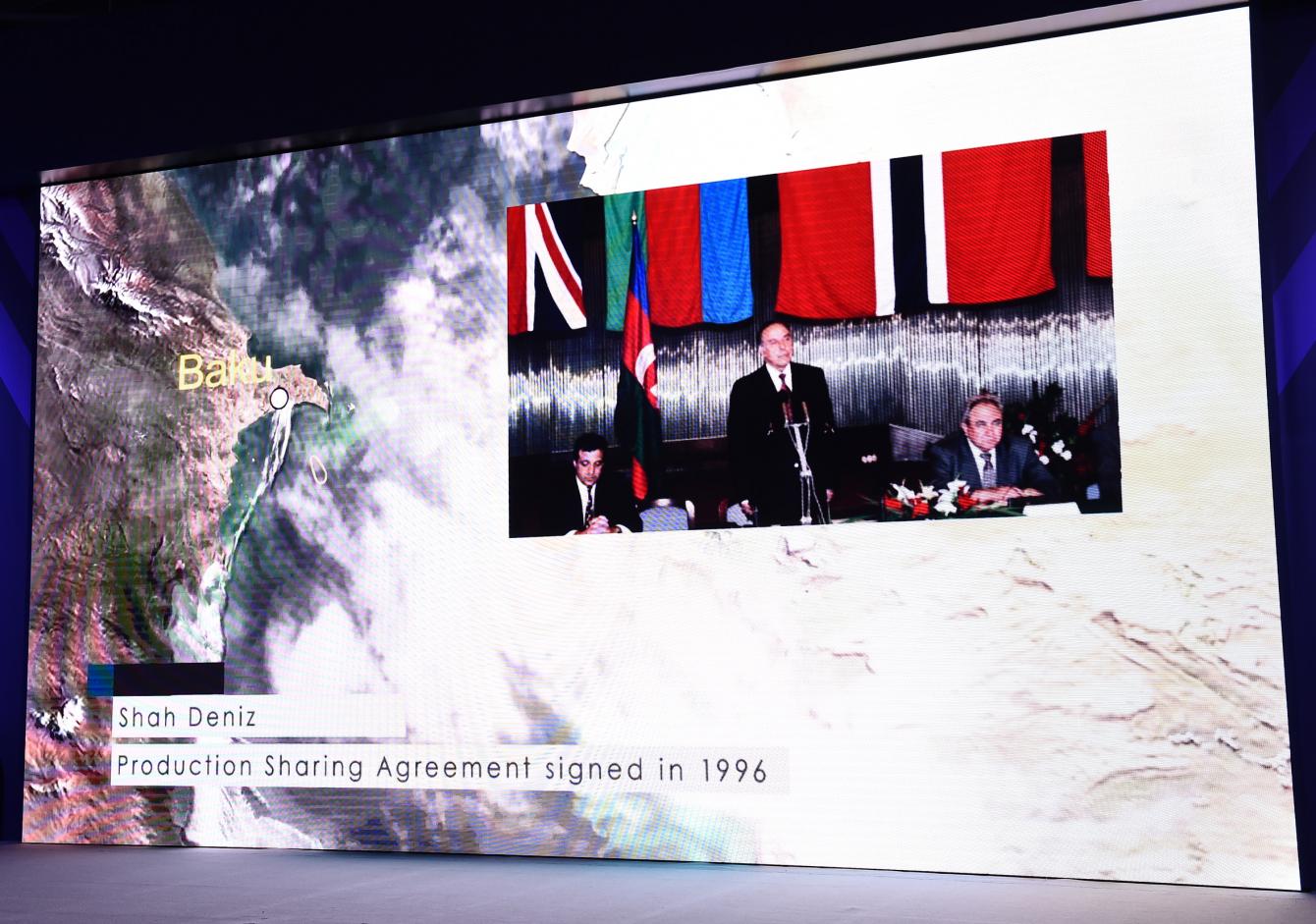
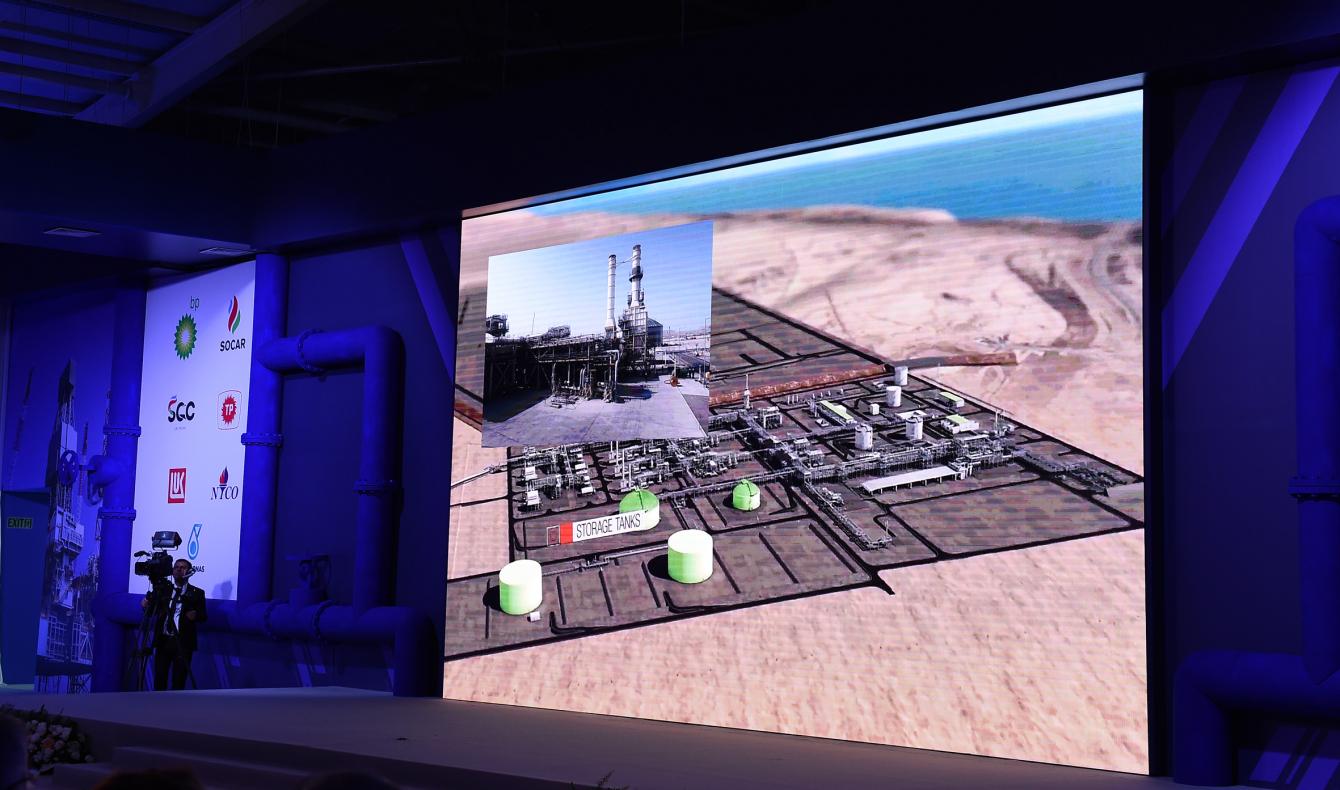
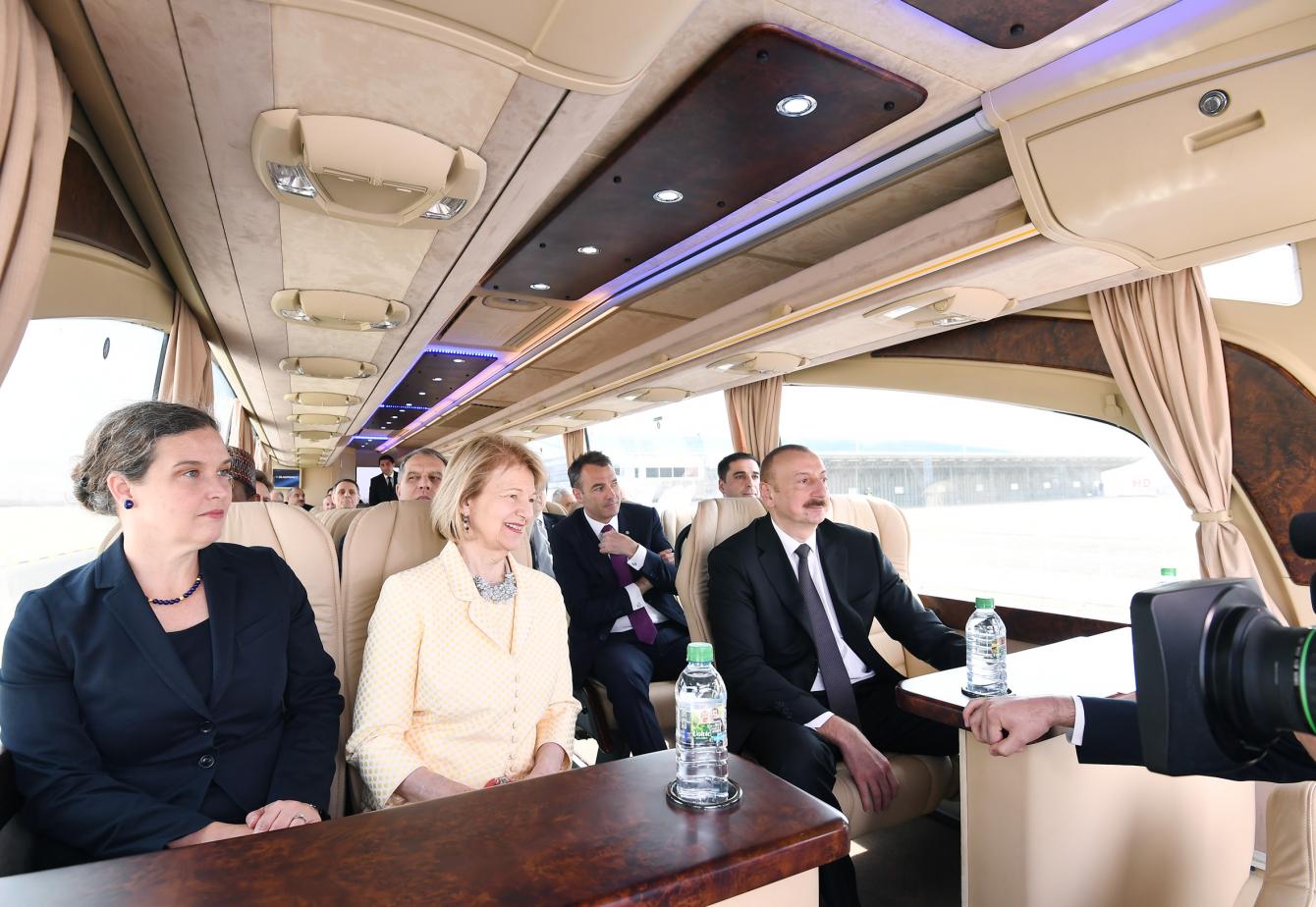
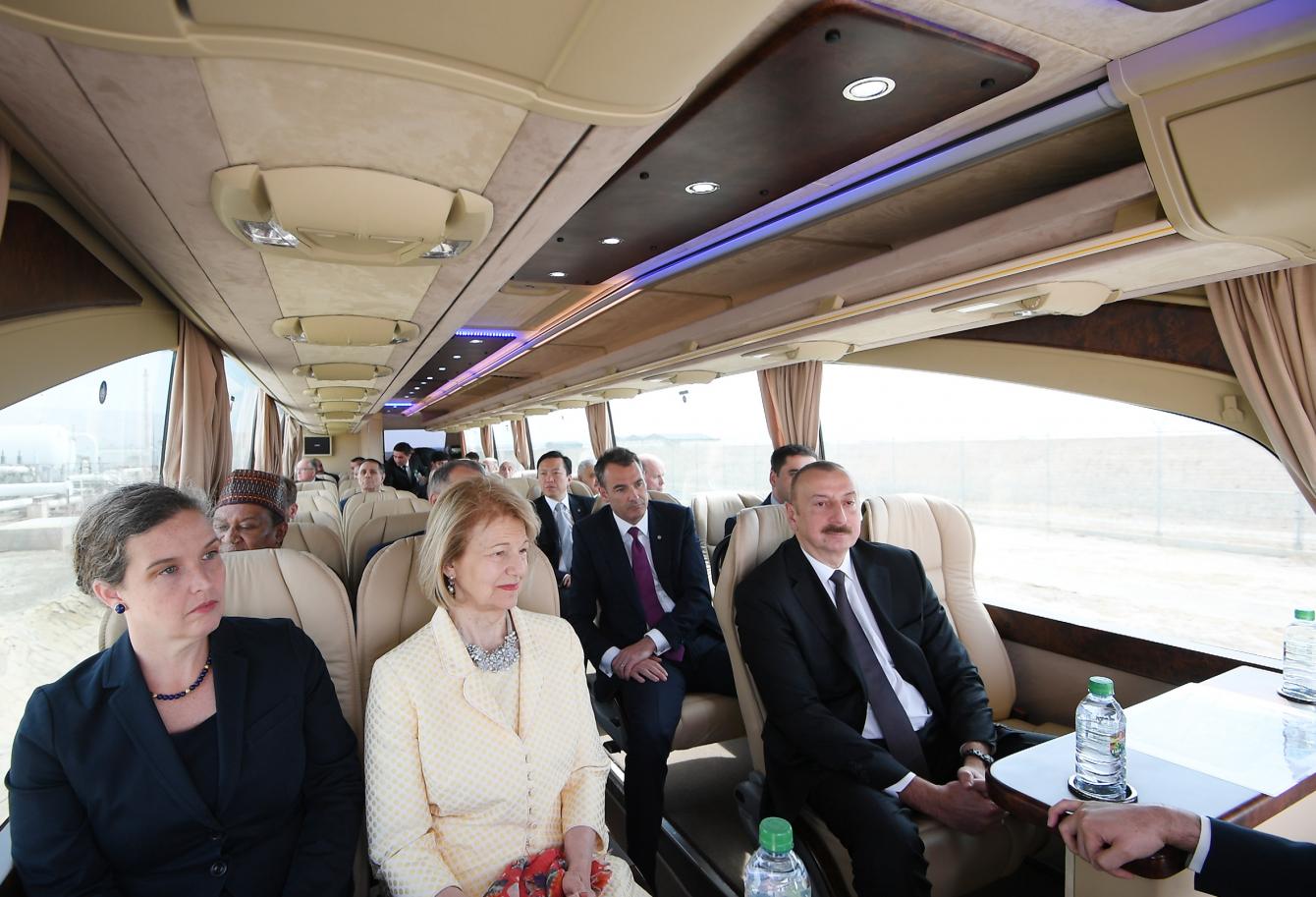
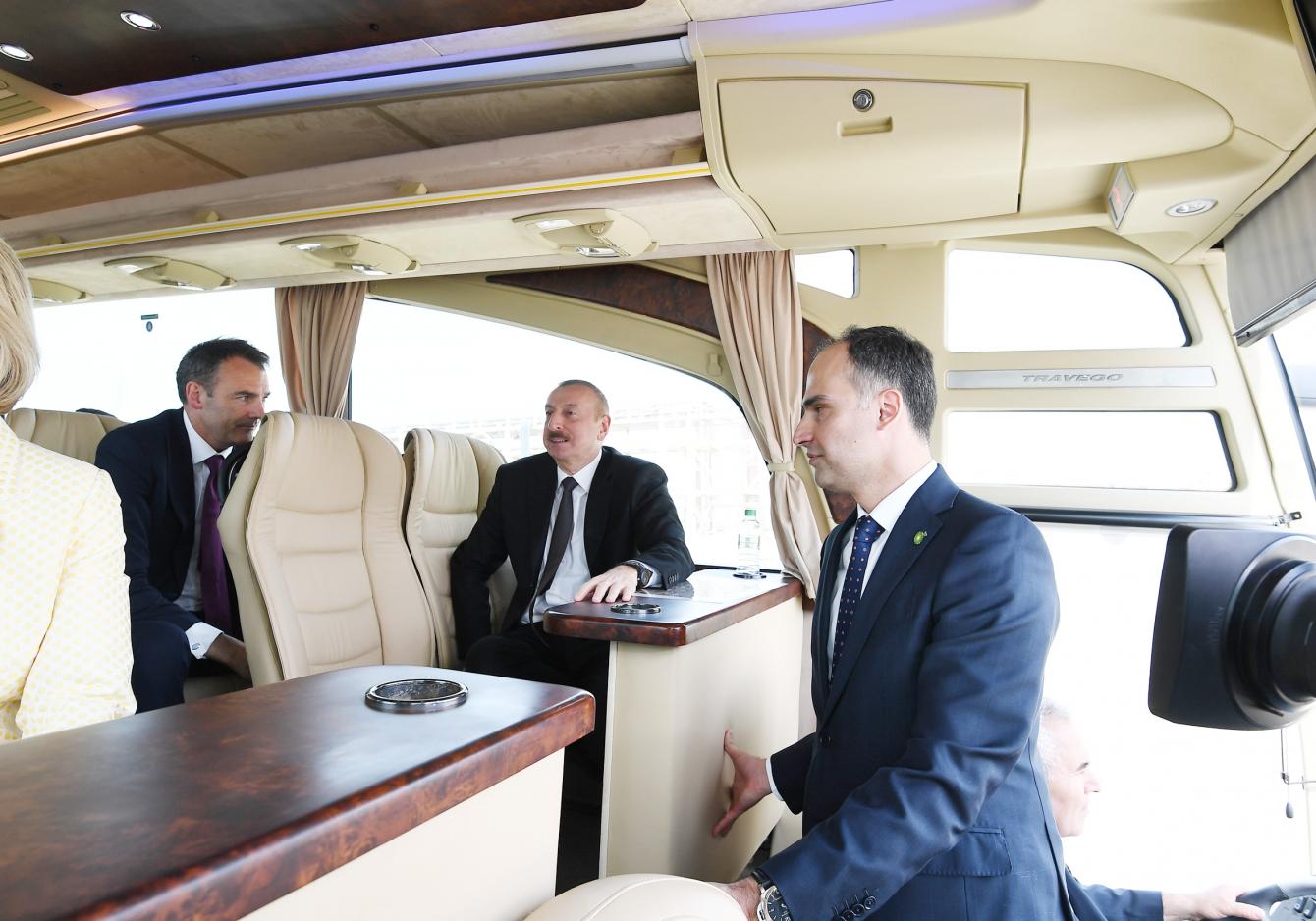
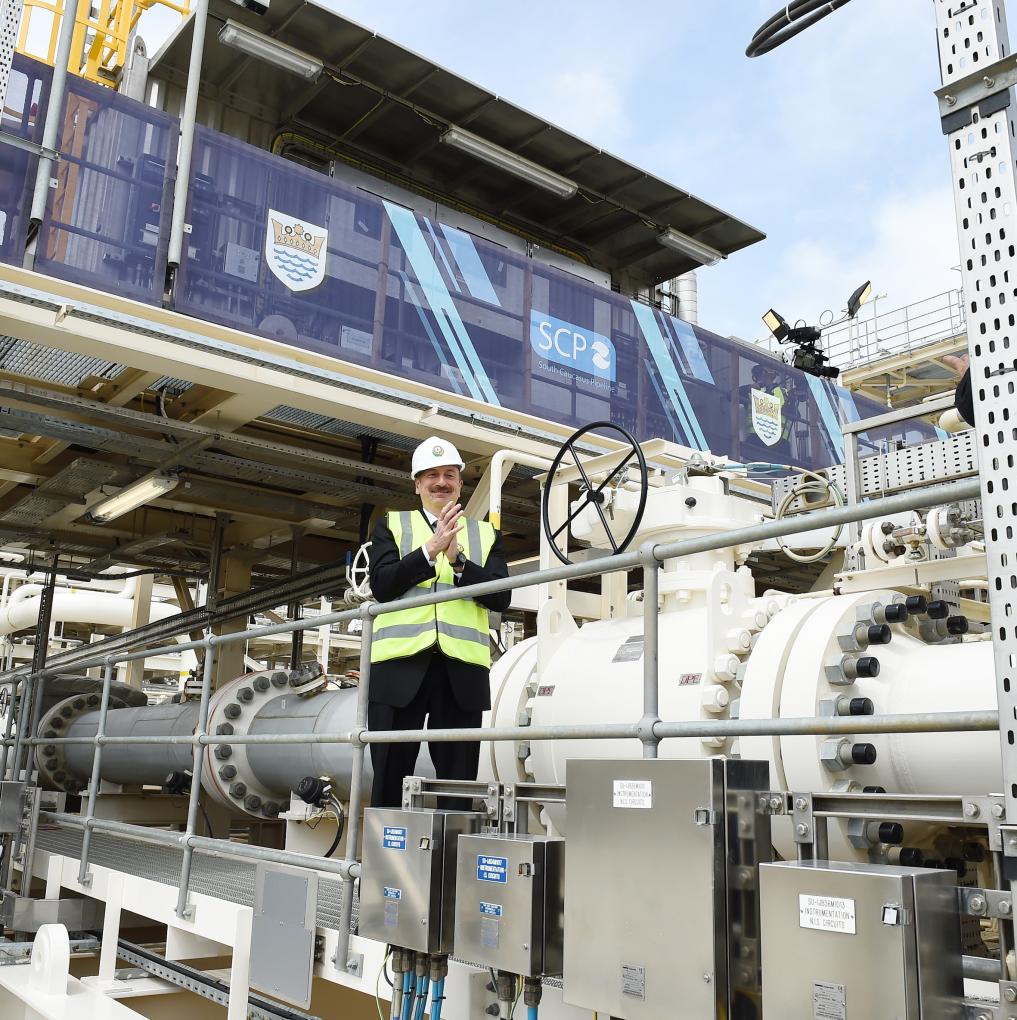
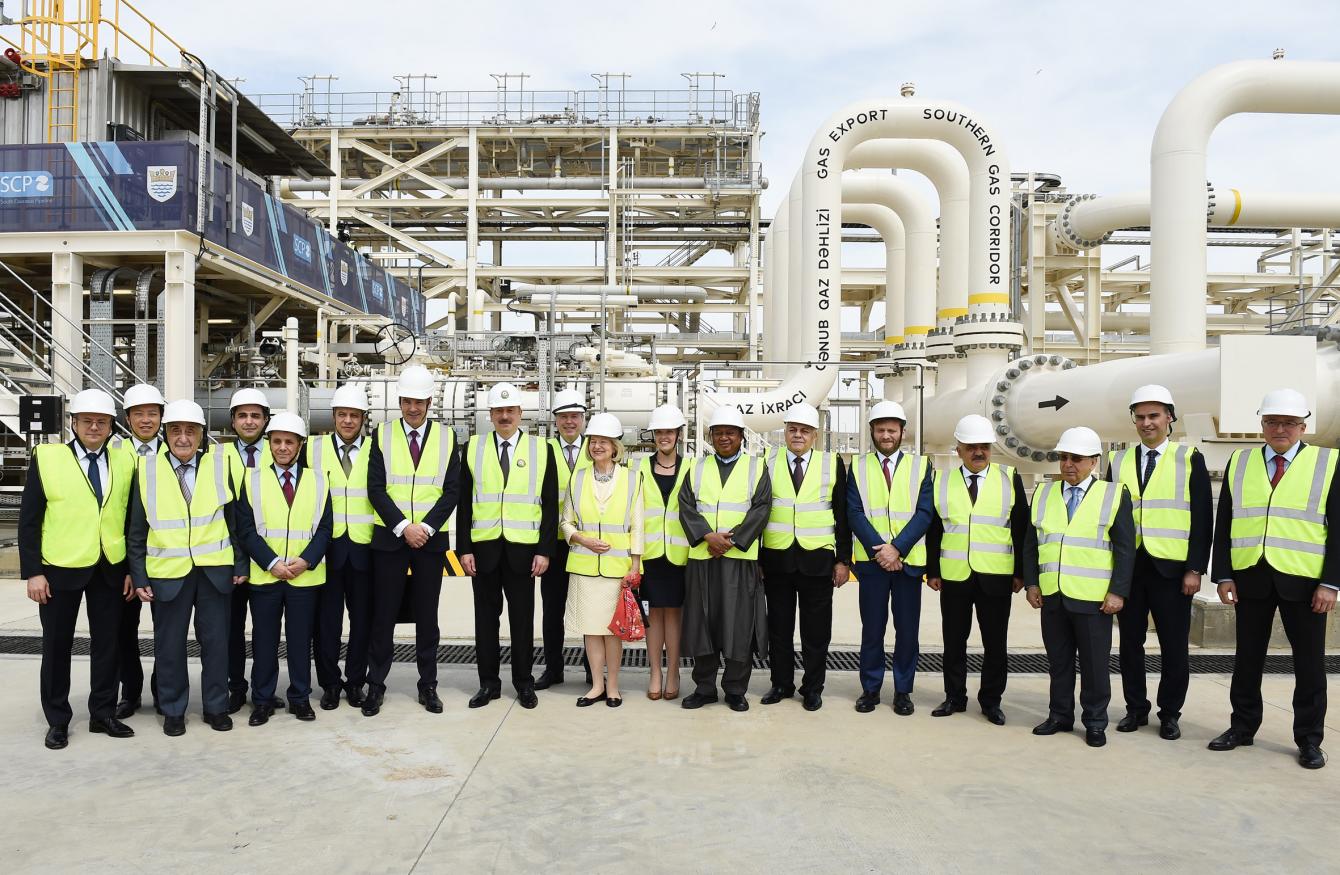
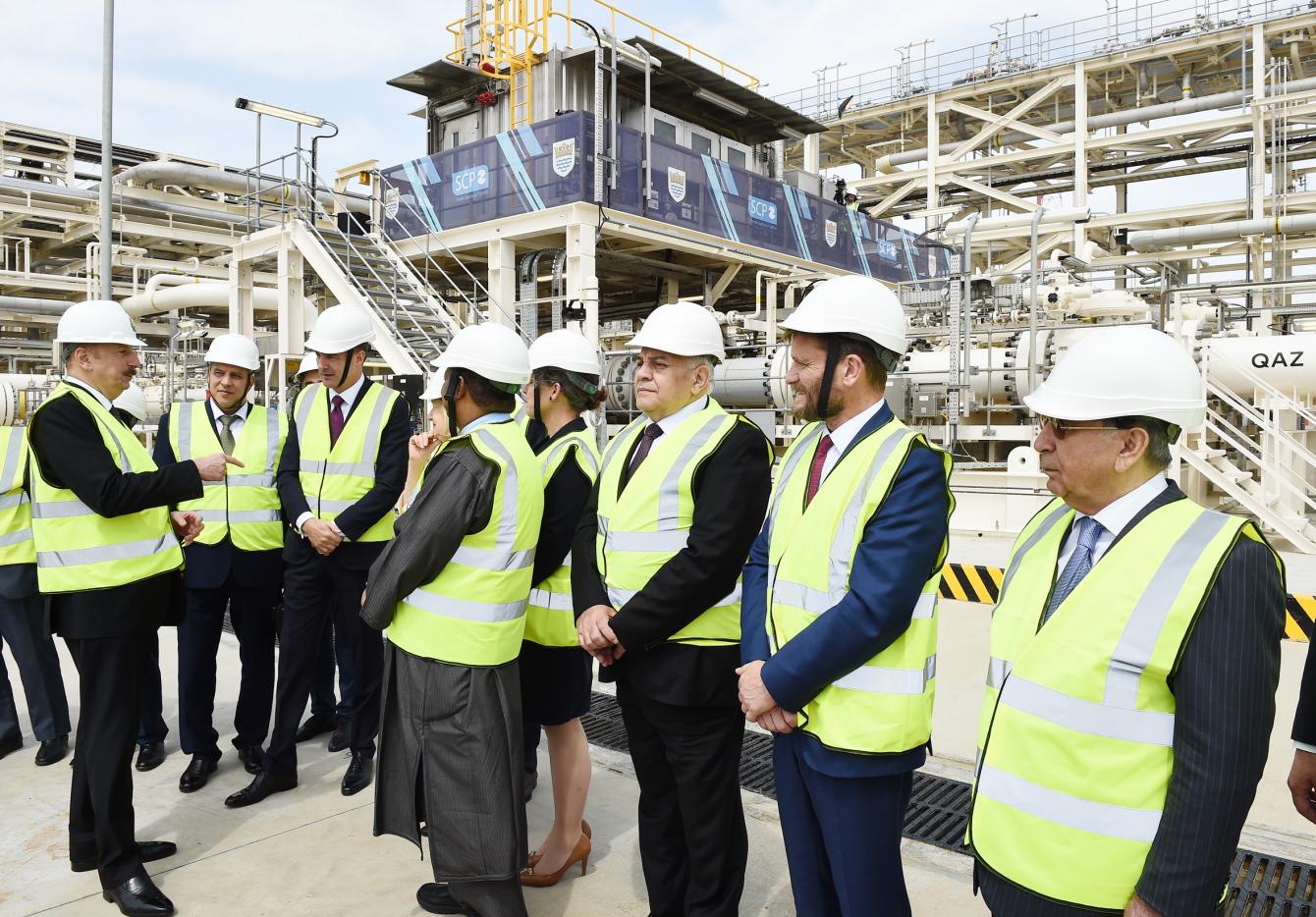
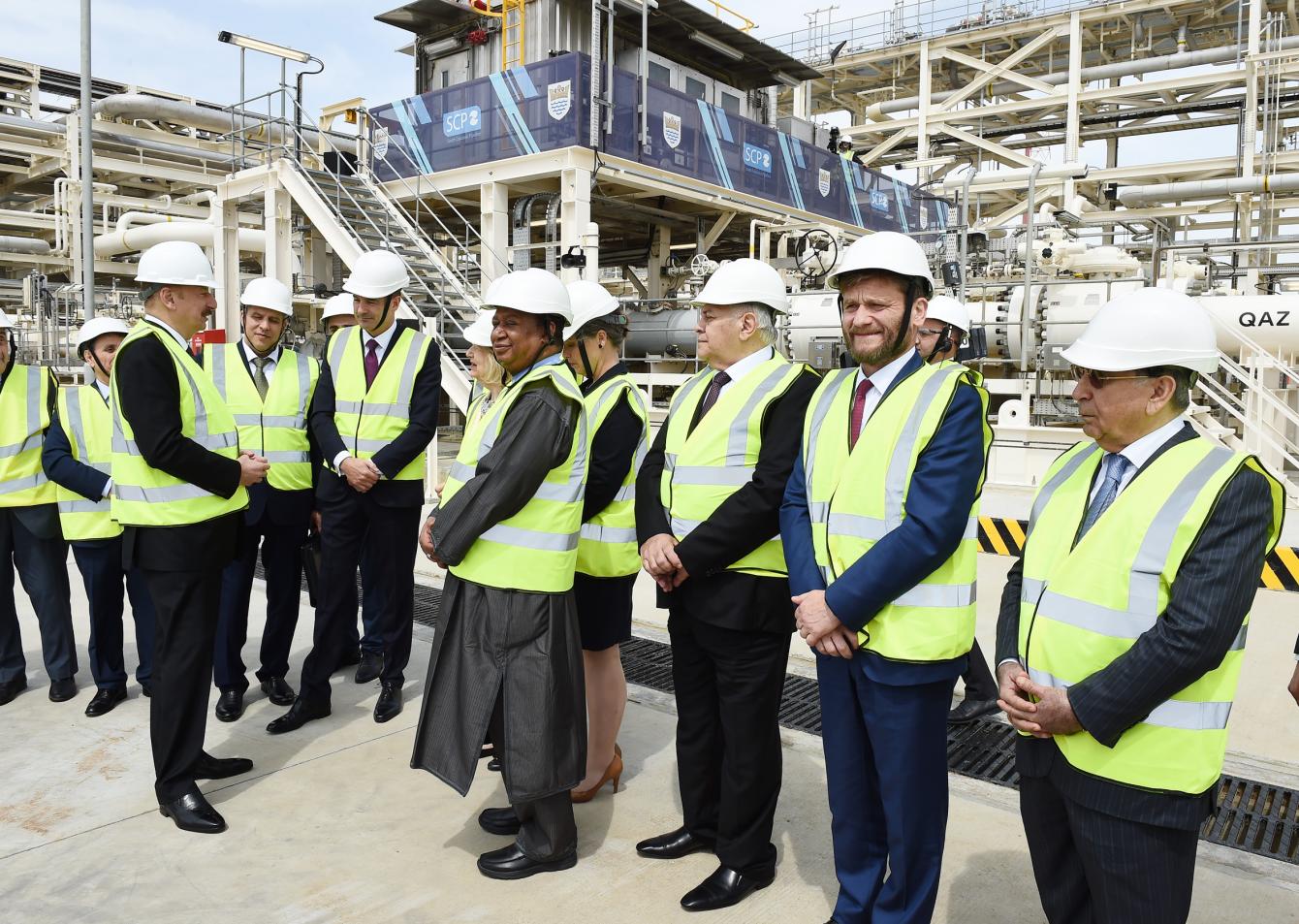
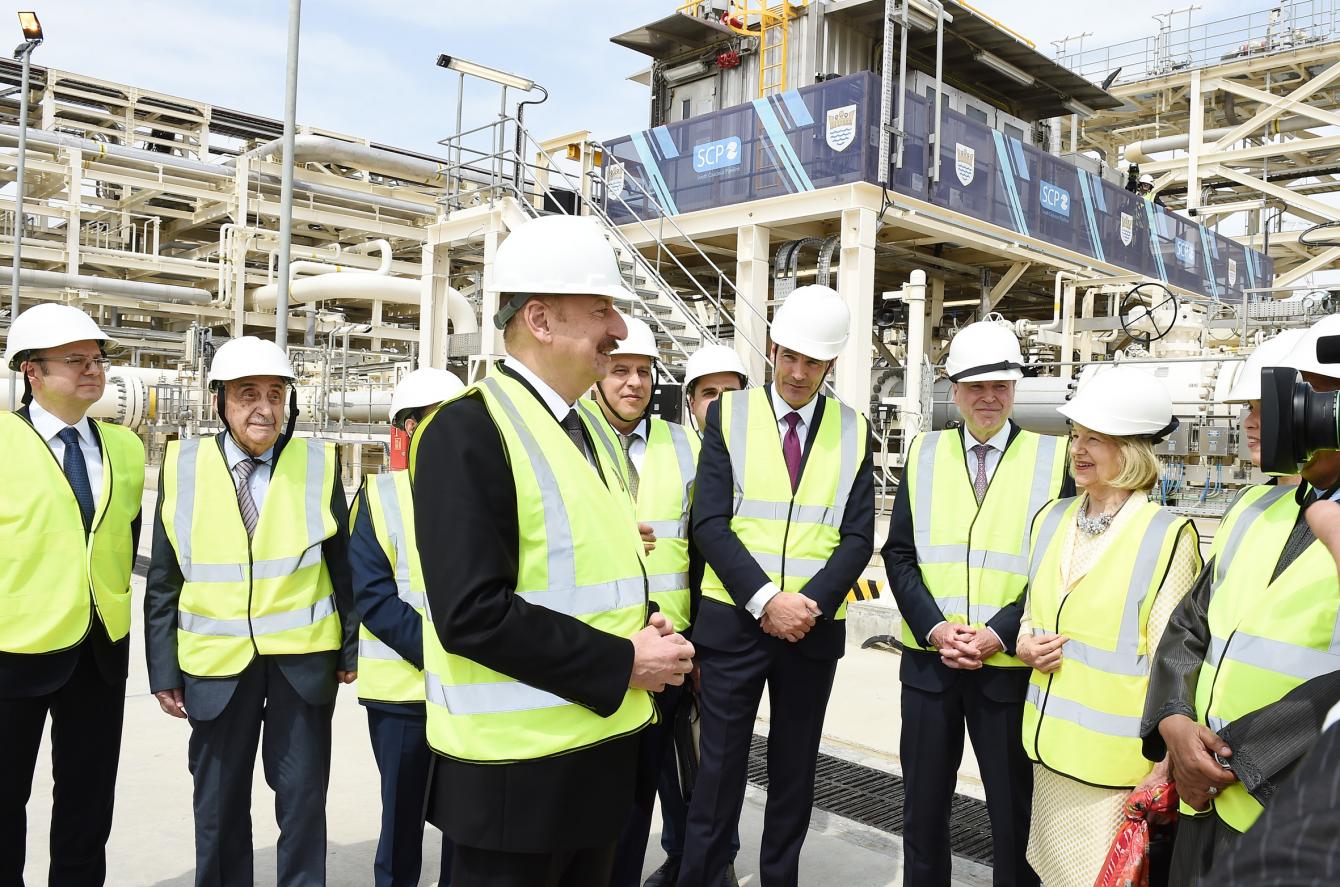
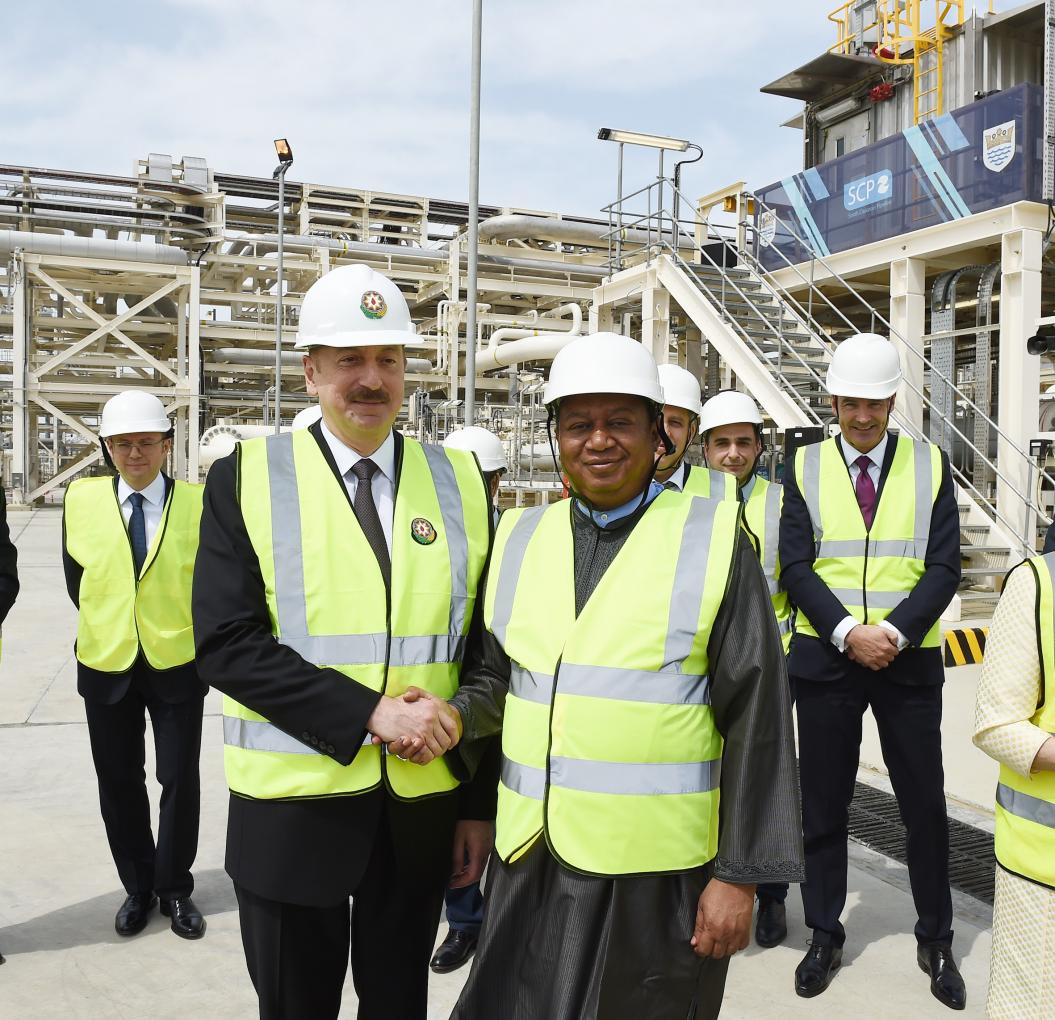
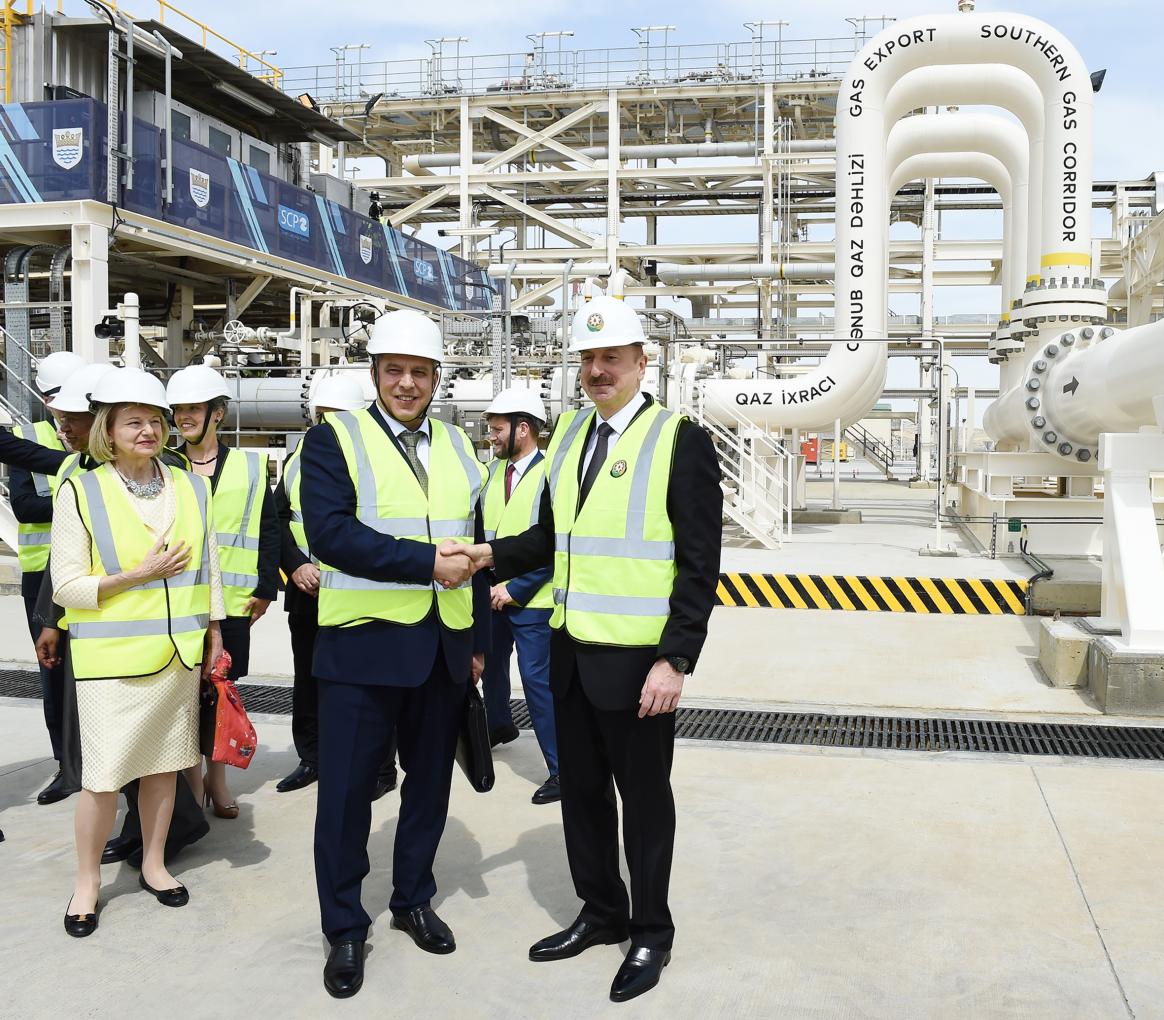
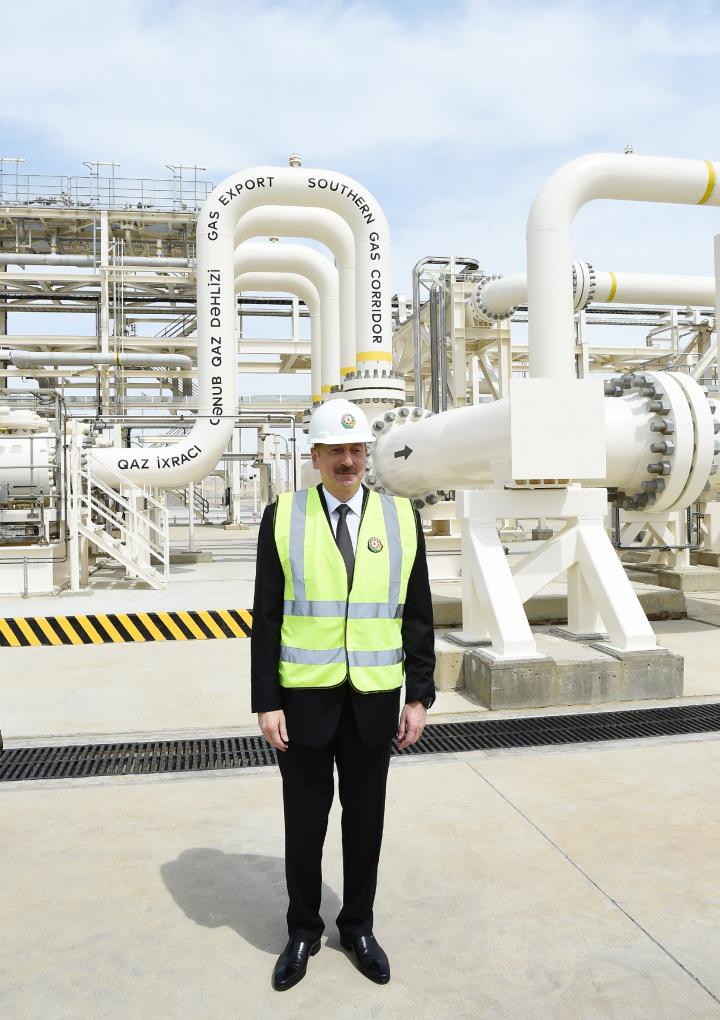
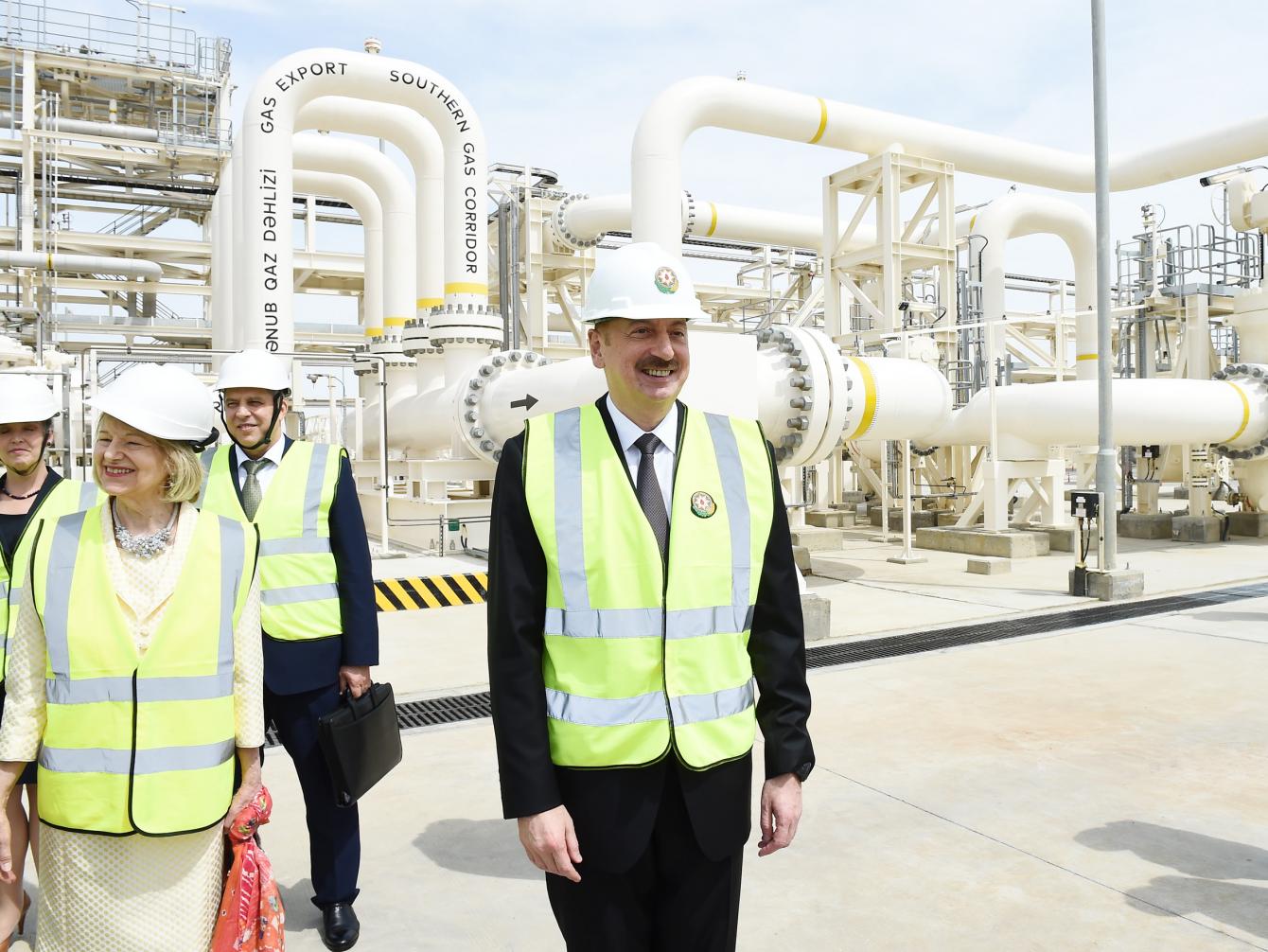
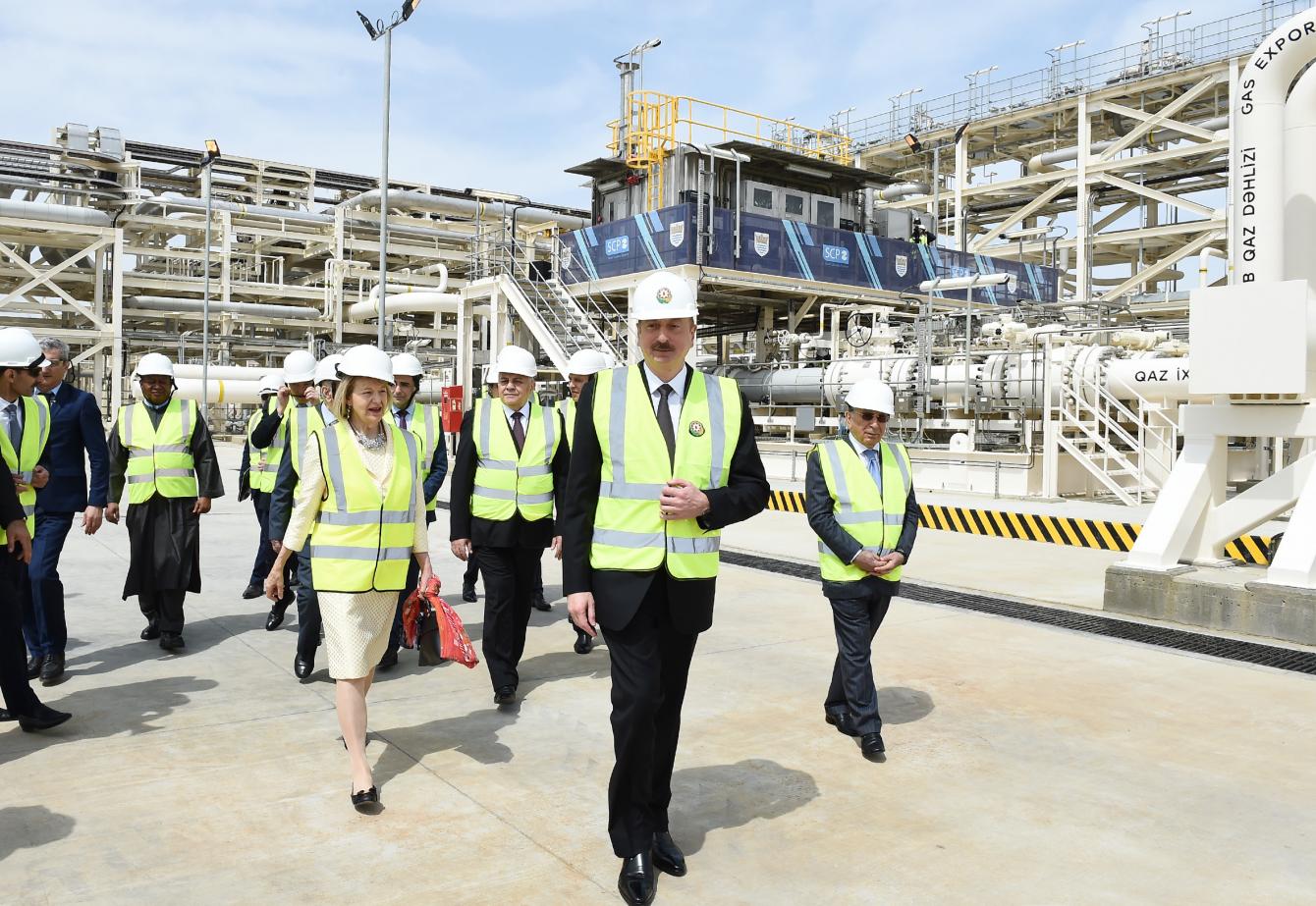
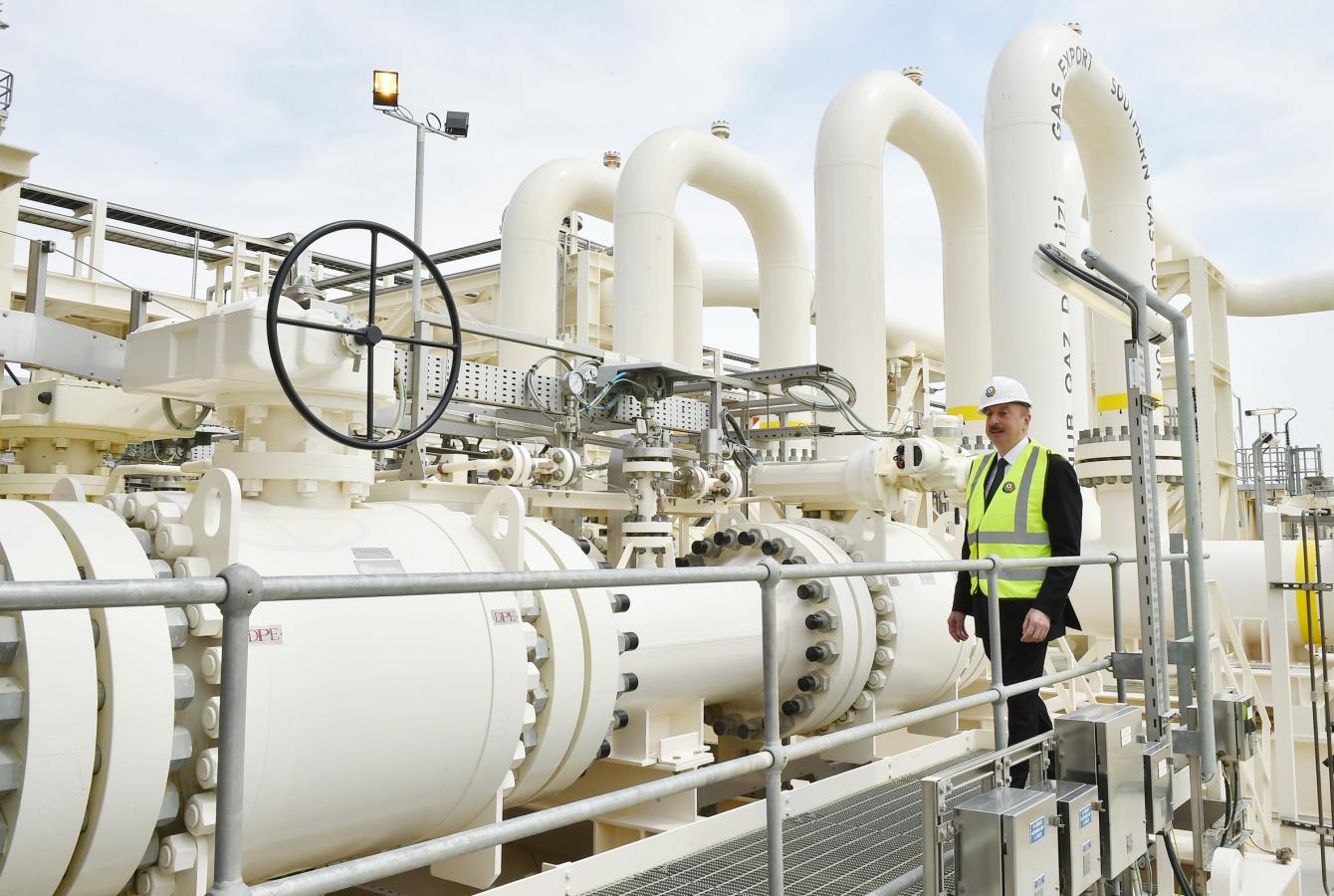
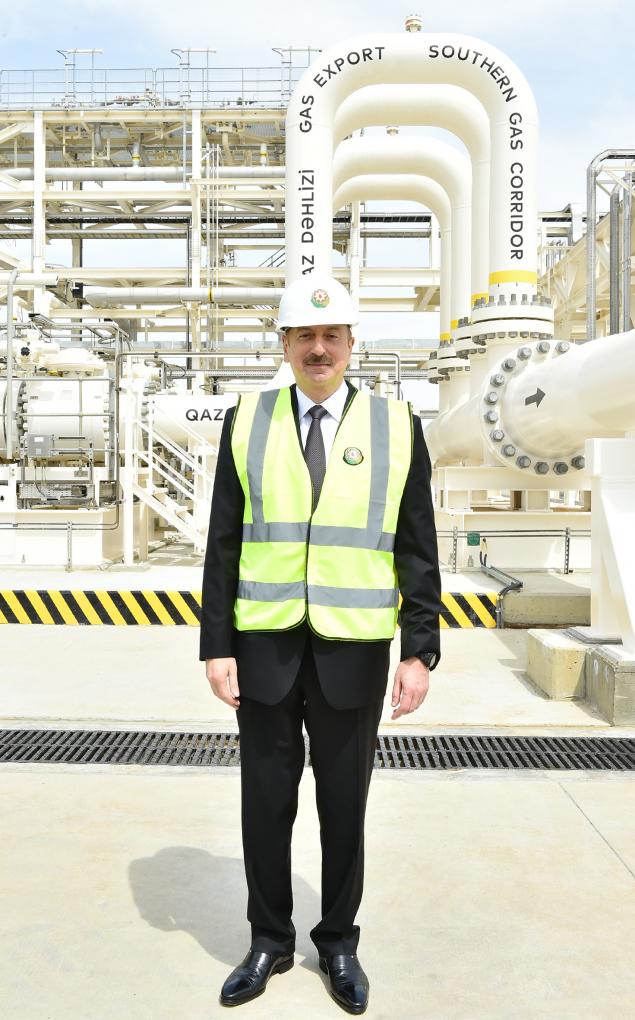
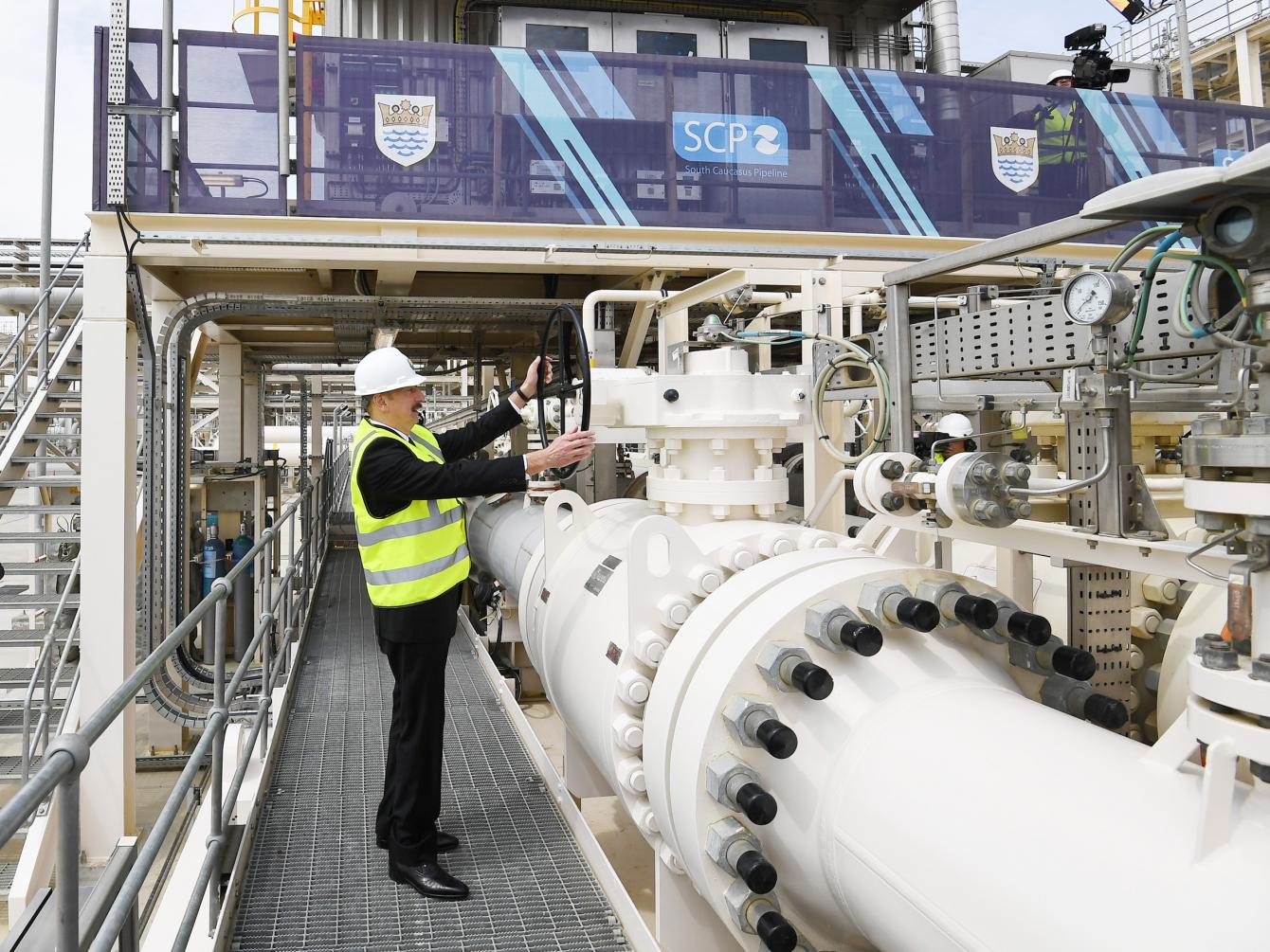
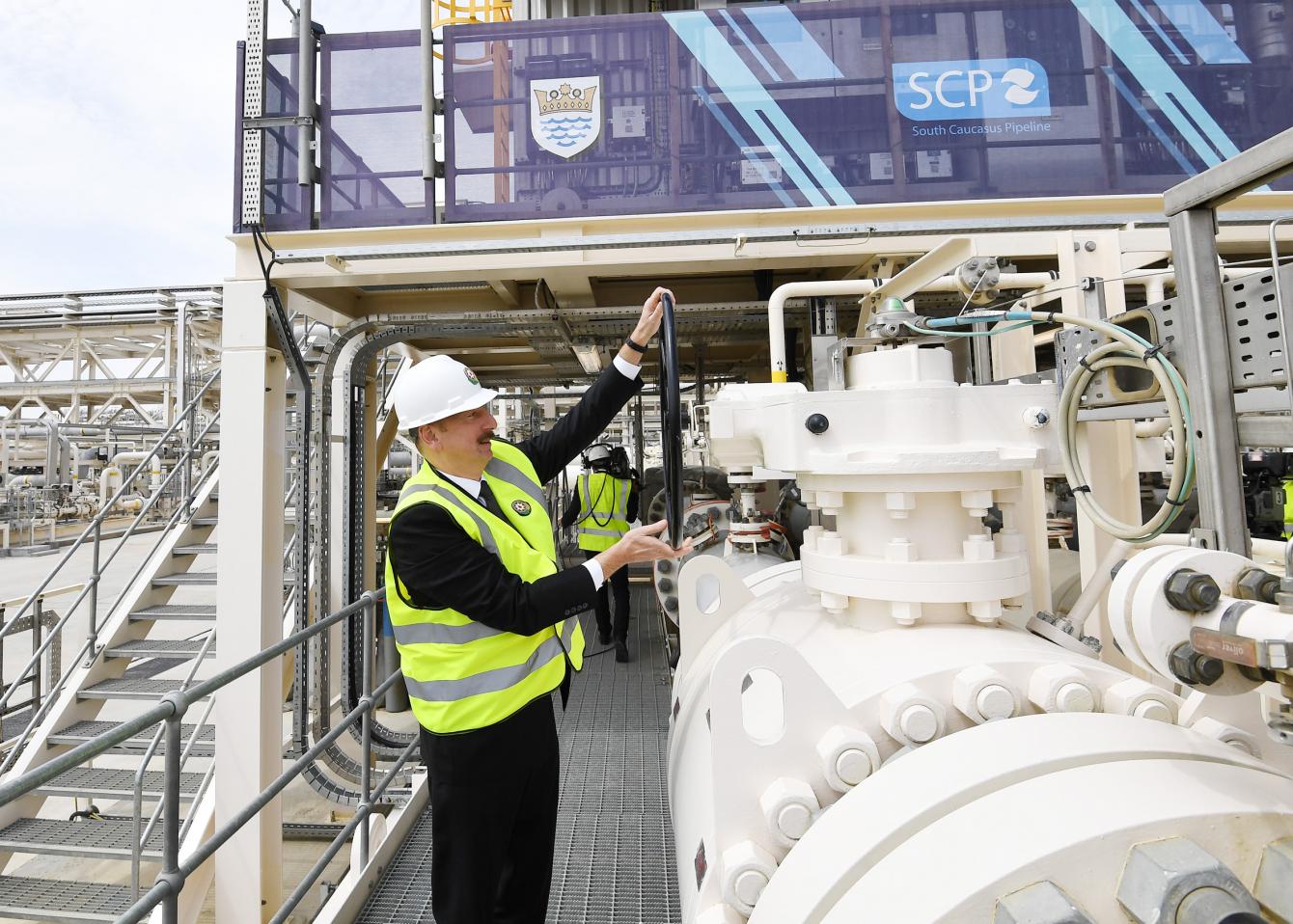
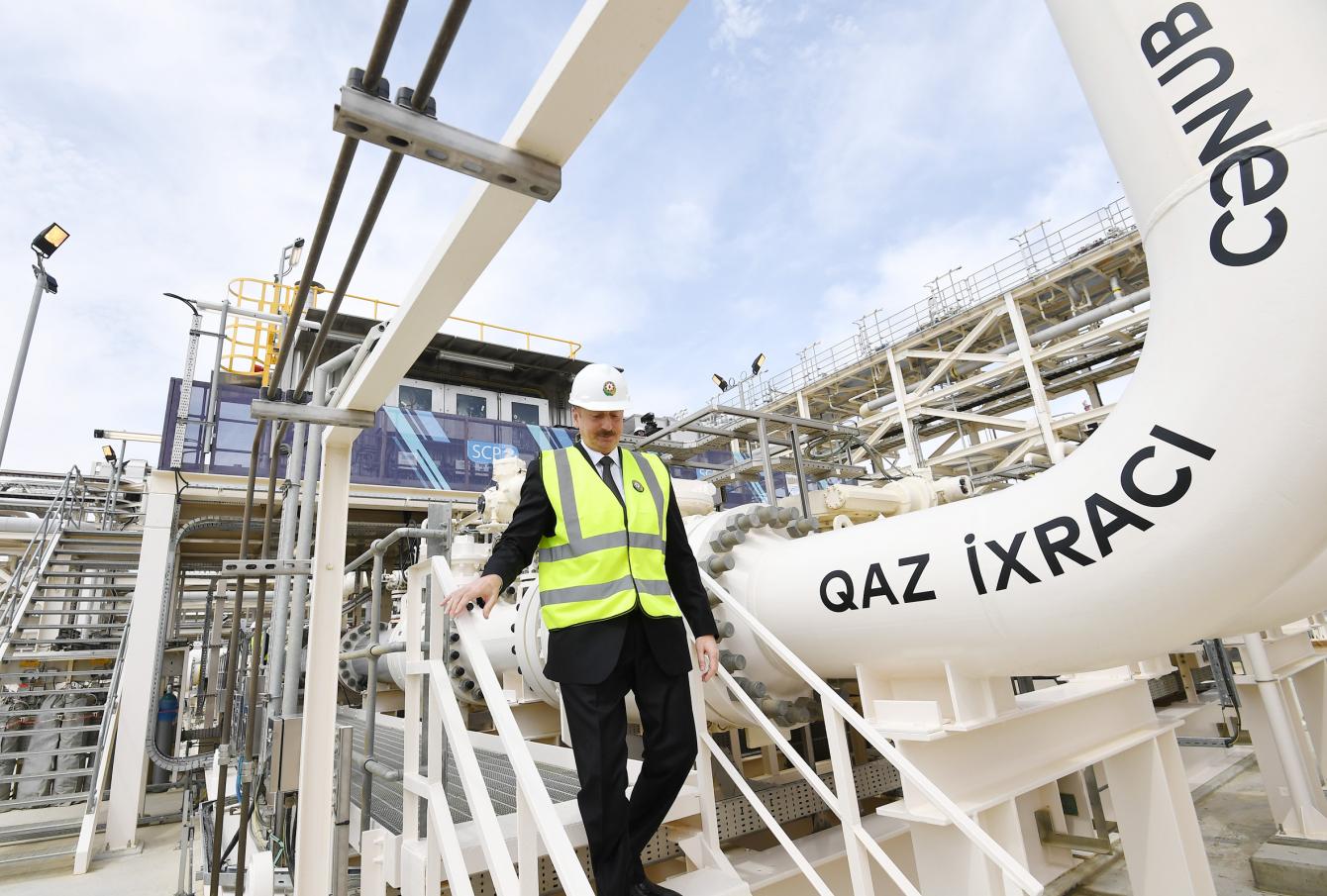
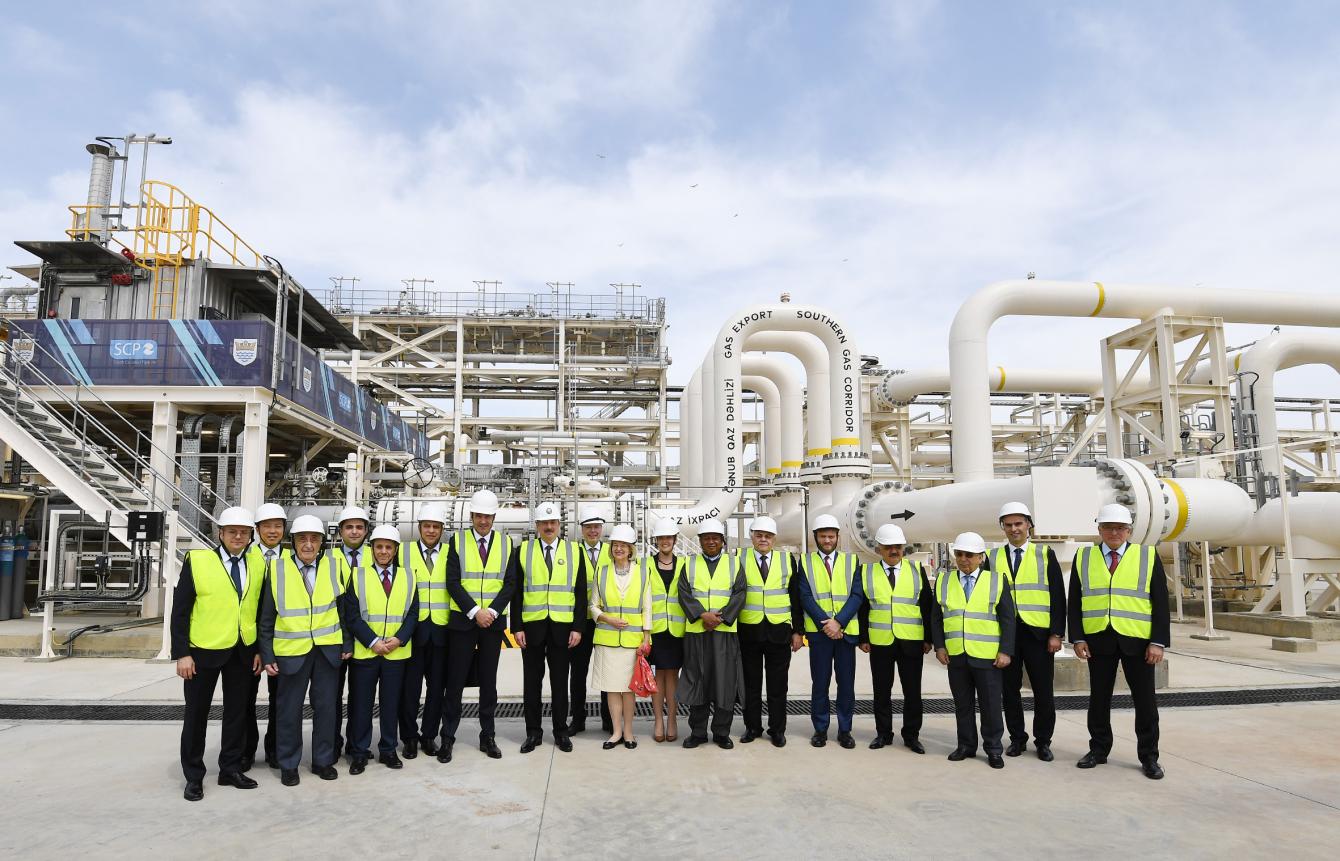
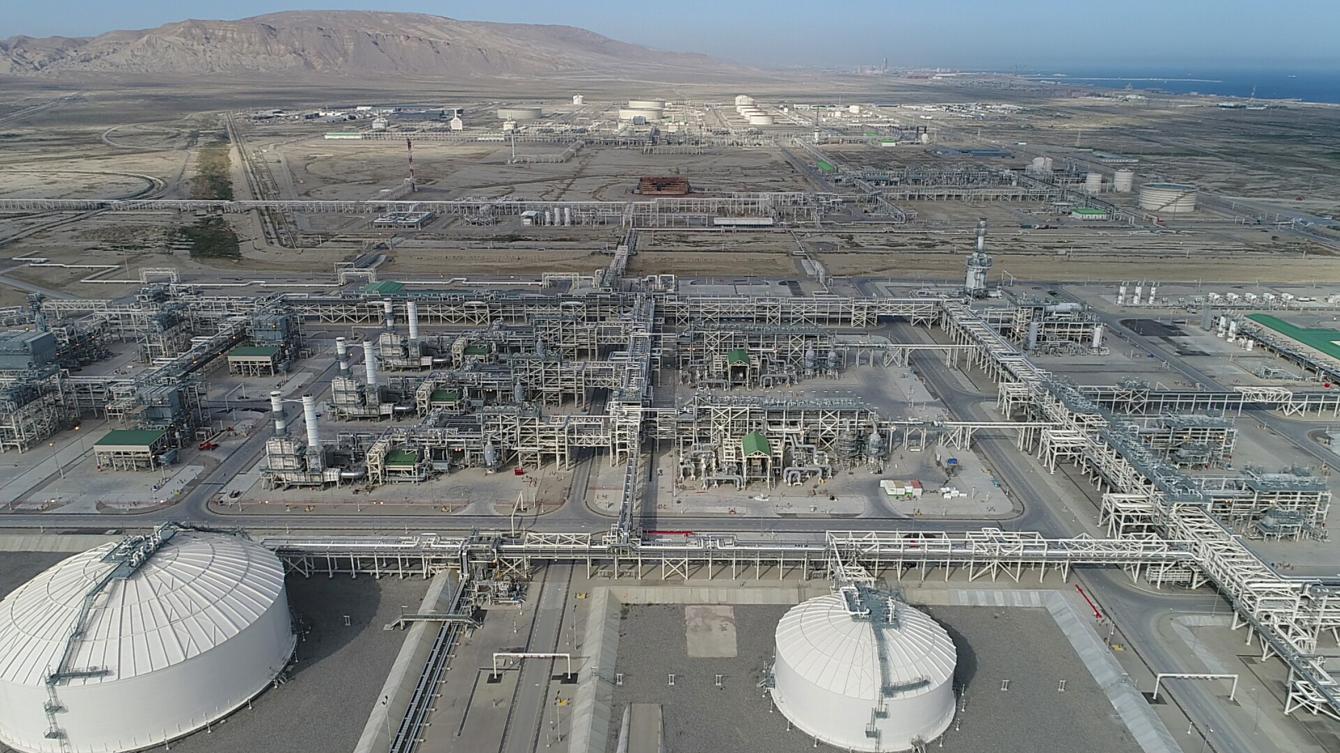
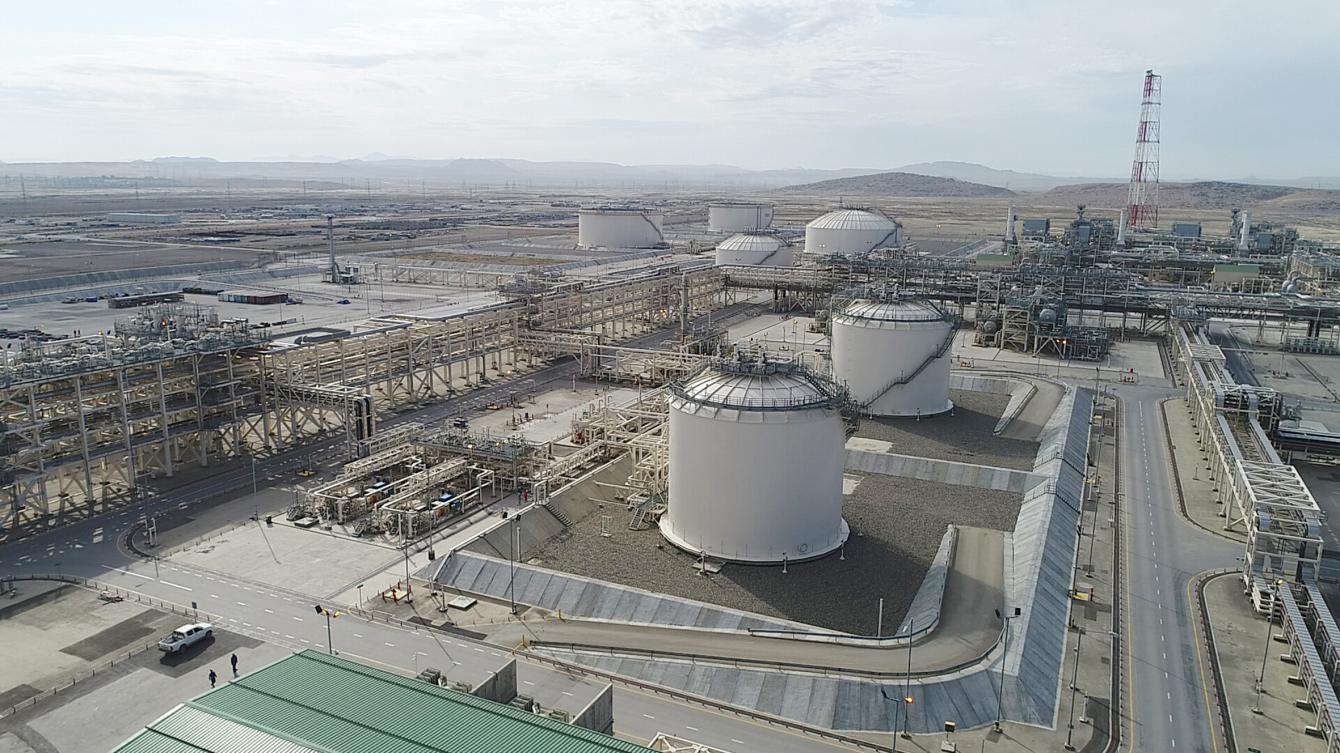
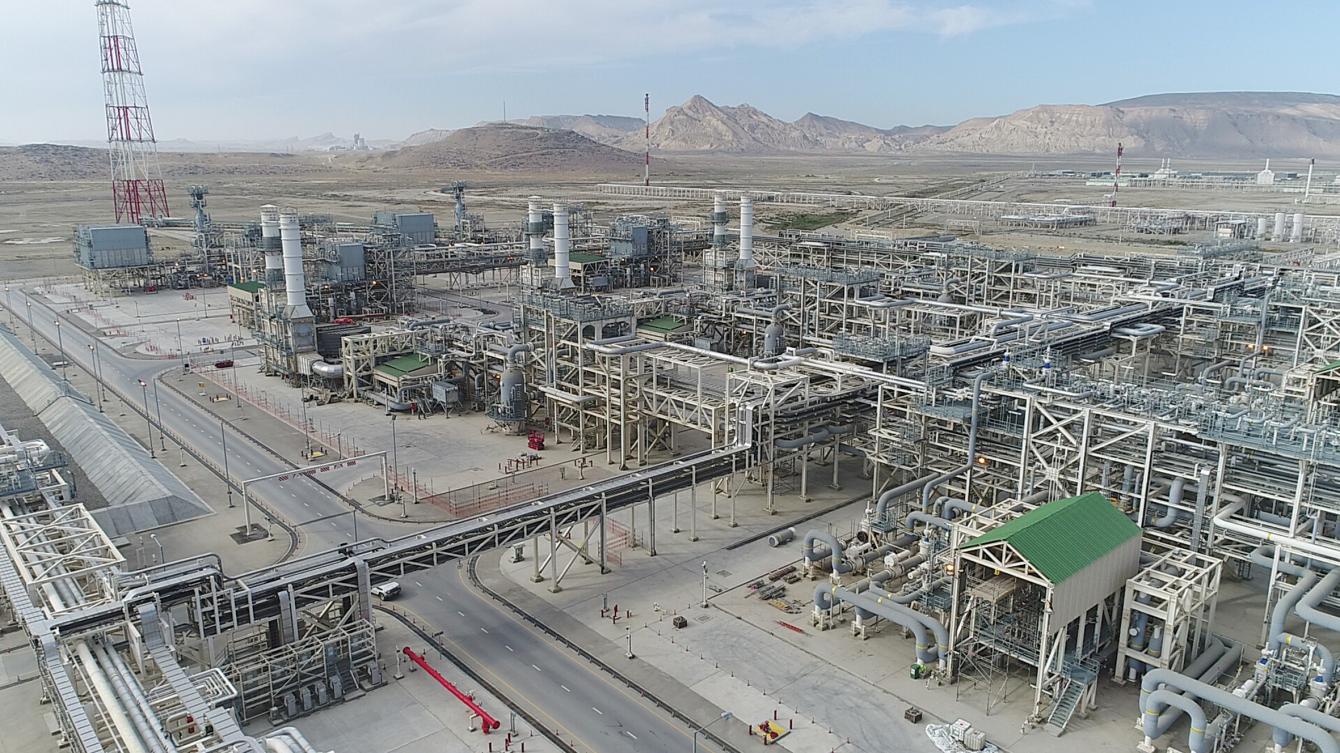

President of the Republic of Azerbaijan Ilham Aliyev completed his working visit to the Russian Federation on April 22.
22 April 2024, 23:13Ilham Aliyev, President of the Republic of Azerbaijan, and Vladimir Putin, President of the Russian Federation, had a joint dinner in Moscow on April 22.
22 April 2024, 20:48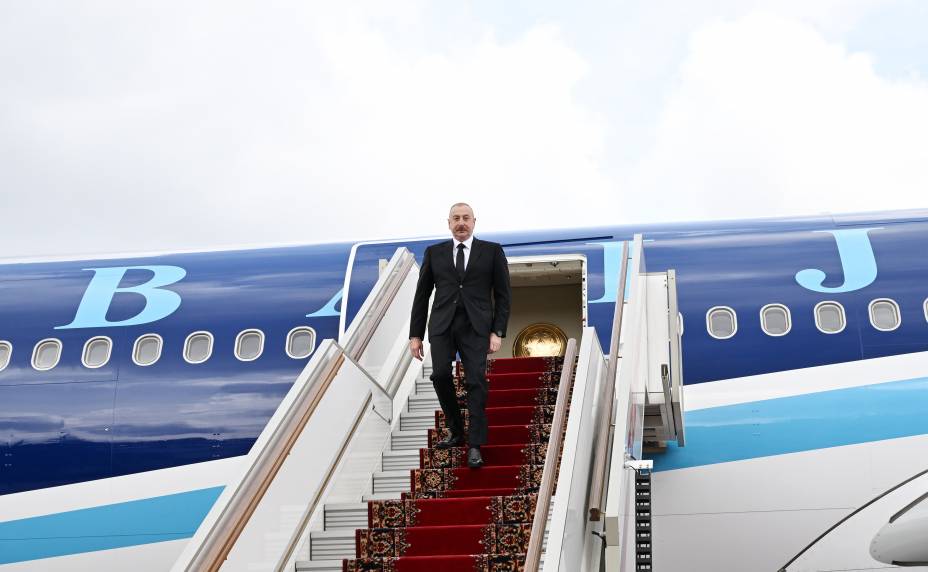
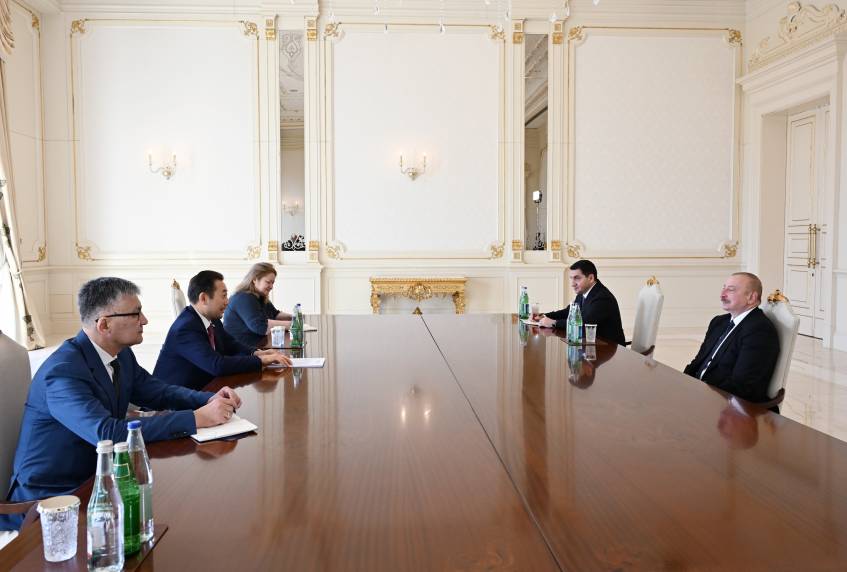
Aleksandar Vučić, President of the Republic of Serbia, made a phone call to the President of the Republic of Azerbaijan Ilham Aliyev, on April 16, briefing him on the pressures Serbia has been encountering recently and requesting the support of the friendly...
16 April 2024, 20:36Dear Mr. Pellegrini,
I sincerely congratulate you on your election as the President of the Slovak Republic.
The development of friendly relations with Slovakia holds great significance for us. Currently, there are good opportunities for enriching the...
15 April 2024, 13:06Prime Minister Muhammad Shehbaz Sharif of the Islamic Republic of Pakistan made a phone call to President Ilham Aliyev of the Republic of Azerbaijan on April 9.
Pakistan's Prime Minister congratulated the head of state on the occasion of Eid al-Fitr and wished...
09 April 2024, 19:52